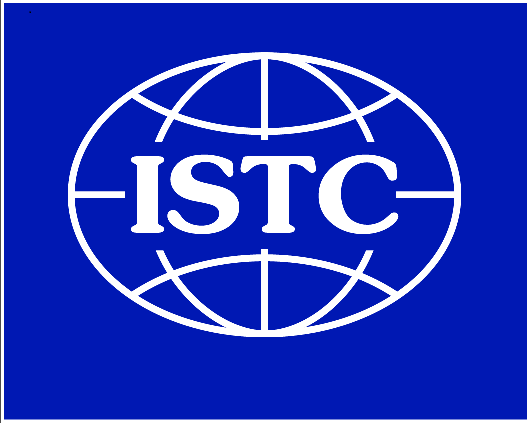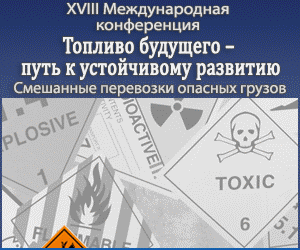НОВОСТИ И КОММЕНТАРИИ
Конференция организована на высоком профессиональном уровне
Типовые Правила ООН - результат коллективного разума экспертов разных стран
Подготовка экспертов ВОПОГ
Планы предупреждения и ликвидации разливов нефти и нефтепродуктов
Вниманию нефтяных компаний
Ростехнадзор уточняет требования к осуществлению производственного контроля
АРКТИКА: ПРОШЛОЕ, НАСТОЯЩЕЕ, БУДУЩЕЕ
Таможенные органы повышают квалификацию по контролю за оборотом топлива
Грузы повышенной опасности: новые требования
Когда опасные отходы могут стать опасными грузами | 22.04.2024 |
|---|---|
 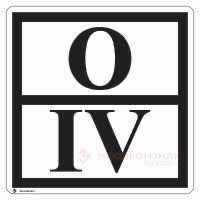
В соответствии с Федеральным законом от 24 июня 1998 г. № 89-ФЗ «Об отходах производства и потребления» (с изменениями на 04.08.2023 года), деятельность по сбору, транспортированию, обработке, утилизации, обезвреживанию, размещению отходов I-IV классов опасности подлежит лицензированию в соответствии с Федеральным законом от 4 мая 2011 года № 99-ФЗ «О лицензировании отдельных видов деятельности». Стоит обратить внимание на то, что в соответствии с правилами к Соглашению о международной дорожной перевозке опасных грузов (ДОПОГ) (документ ECE/TRANS/326), ООН, Нью-Йорк и Женева, 2023, которые действуют на территории Российской Федерации в качестве национальных правил, опасные грузы подразделяются на 13 классов опасности. В результате зачастую возникает путаница между категориями «опасные отходы» и «опасные грузы». Лица, которые допущены ко всем видам работ с отходами I-IV классов опасности и их транспортированию, обязаны иметь документы о квалификации, выданные по результатам прохождения профессионального обучения. Обучение проводится по учебным программам, базирующимся на типовой дополнительной профессиональной программе, утвержденной приказом от 15.10.2021 г. № 755 Министерства природных ресурсов и экологии Российской Федерации, объемом 38 академических часов. Как в типовую программу, так и в программы, разработанные на ее основе и реализуемые в различных учреждениях дополнительного профессионального образования, не включены вопросы, касающиеся классификации и особенностей обращения с опасными грузами. Поэтому персонал операторов, занятых сбором, обработкой и транспортированием опасных отходов, имея общую подготовку по обращению с отходами, не ориентирован в вопросах, касающихся обращения с опасными грузами, что вызывает подмену понятий, недоразумения и создает предпосылки к привлечению операторов к административной ответственности за нарушение правил перевозки опасных грузов, к которым опасные отходы, как они определены в Федеральном законе № 89-ФЗ, не относятся. В то же время, у контрольно-надзорных органов появляются определенные основания для таких действий вследствие того, что оператор сам не всегда видит разницу между опасными грузами и опасными отходами. С учетом отмеченного эксперты Международной Ассоциации по опасным грузам и контейнерам (НП «АСПОГ») совместно с преподавателями Международного центра подготовки персонала (МЦПП) разработали учебную программу повышения квалификации специалистов, вовлеченных в оборот опасных отходов, учитывающую особенности обращения как с опасными отходами, так и с опасными грузами, на всех этапах их жизненного цикла. Объем учебной программы 40 академических часов. Освоение этой расширенной учебной программы позволит как руководителям, так и специалистам операторов, занятых сбором, обработкой и транспортированием опасных отходов, получить новые компетенции, в результате чего операторы будут более обоснованно строить свою деятельность, а случаи предъявления к ним со стороны контрольно-надзорных органов необъективных претензий будут исключены. | |
Россия – первая страна в мире, отправившая человека в космос | 11.04.2024 |
 
12 апреля мы отмечаем День космонавтики. История отечественной и мировой космонавтики насчитывает десятки лет. Эта история включает и победы, и трагические события, но несомненно одно – космонавтика развивается, и все больше стран становится космическими державами. Как бы ни складывалась история космонавтики, полет Юрия Алексеевича Гагарина навсегда останется ни с чем не сравнимым событием. Шаг в неведомое совершила именно наша страна. Ракетно-космическая техника постоянно развивается. Сейчас на повестке дня стоит вопрос применения перспективных топлив для ракет космического назначения, например, проводятся как исследовательские, так и опытно-конструкторские разработки ракетных двигателей, использующих в качестве горючего жидкий метан, получены практические результаты. В канун Дня космонавтики с космодрома Восточный успешно стартовала ракета тяжелого класса «Ангара-А5». Это открывает широкие перспективы для отечественной космонавтики. В частности, модернизированная «Ангара-А5М» сможет выводить на орбиту модули новой российской орбитальной станции. При этом в ближайшей перспективе для ракет семейства «Ангара» будет разработан разгонный блок с кислород-водородными двигателями. Вопросы, связанные с перспективными ракетными топливами для мирного космоса, будут обсуждаться, наряду с другими вопросами, на II Международной конференции «Топливо будущего – путь к устойчивому развитию – 2024. Логистика, безопасность, экология», которая состоится 4 июня 2024 года в г. Петергофе. | |
Оператор объектов малотоннажного производства СПГ | 05.04.2024 |
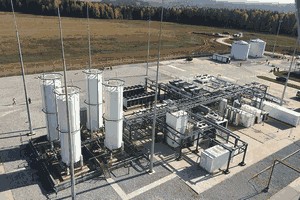
В Международном центре подготовки персонала (МЦПП) накоплен значительный опыт подготовки грузовых мастеров морских терминалов СПГ. Логическим продолжением этой работы стала разработка новой программы повышения квалификации, предназначенной для обучения операторов объектов малотоннажного производства СПГ и его регазификации. Актуальность программы вызвана, прежде всего, тем, что малотоннажное производство СПГ в последние годы получило значительное развитие в соответствии с «Планом мероприятий по развитию рынка малотоннажного сжиженного природного газа и газомоторного топлива в Российской Федерации до 2025 года», утвержденным Распоряжением Правительства Российской Федерации от 13 февраля 2021 г. № 350-р. Построенные к настоящему времени предприятия малотоннажного производства СПГ применяют различные установки, в которых реализуются дроссельные, детандерные, комбинированные циклы, а также технологии азотного охлаждения. Потребителями продукции малотоннажного производства СПГ выступают различные предприятия и отрасли, в т.ч. объекты автономной генерации электроэнергии, предприятия газификации населенных пунктов, транспорт (применение в качестве газомоторного топлива) и др. Часть продукции предназначается для экспортных поставок. Отличительной особенностью учебной программы МЦПП является то, что она отличается предельной конкретностью, подбором именно того учебного материала, который потребуется операторам объектов малотоннажного производства СПГ и его регазификации в их практической деятельности. Данный учебный материал базируется на положениях международных требований и стандартов в области криогенной техники и требованиях национальной нормативно-правовой базы. Учебные занятия проводят опытные преподаватели, среди которых доктора и кандидаты технических наук, академики Международной академии холода, практики, имеющий богатый опыт работы в области криогенной техники и криогенных технологий. Выпускники курсов получат новые компетенции, необходимые для обеспечения безаварийной эксплуатации производств. | |
Грузовой мастер морского терминала СПГ | 29.03.2024 |
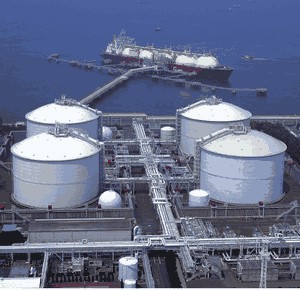
В Международном центре подготовки персонала (МЦПП) завершилось обучение очередной группы слушателей по программе «Грузовой мастер морского терминала СПГ». Морские терминалы СПГ – это объекты, в состав которых входит сложное технологическое оборудование, безопасная эксплуатация которого обеспечивается только при наличии высокого уровня профессионализма персонала, среди которого центральное место занимают грузовые мастера. Учебная программа охватывает широкий круг вопросов, в число которых входит изучение международных конвенций, кодексов, правил, национальной нормативно-правовой базы, изучение свойств СПГ, подробное рассмотрение практических вопросов, связанных с взаимодействием танкера-газовоза и терминала, подготовкой технологического оборудования к работе (с учетом того, что СПГ является криогенной жидкостью), обеспечением безопасности при проведении всех видов работ на терминале, привитие практических навыков работы, в т.ч. с эксплуатационной документацией, и др. В учебной программе используются материалы Международных стандартов ИСО, в разработке которых принимают участие эксперты Международной Ассоциации по опасным грузам и контейнерам (НП «АСПОГ»), работая в Техническом комитете ИСО/ТК 220 – Криогенные сосуды. Несмотря на чрезвычайную насыщенность программы, высокий профессионализм преподавателей МЦПП, в число которых входят капитаны дальнего плавания, сотрудники МЧС, специалисты, имеющие опыт работы на терминалах, в т.ч. оффшорных, представители профессорско-преподавательского состава ВУЗов, обеспечивает усвоение слушателями учебного материала в кратчайшие сроки. Каждый морской терминал СПГ имеет свои особенности, которые вносят специфику в функциональные обязанности персонала и, прежде всего, грузовых мастеров. Соответствующим образом корректируются перечень и содержание учебных тем и вопросов программы. По итогам обучения в МЦПП слушатели успешно сдали выпускной экзамен и получили удостоверения о повышении квалификации, а также сертификаты Marine LNG Terminal Loading Master. | |
Новая редакция Типовых правил ООН по перевозке опасных грузов на русском языке поступила в библиотеку НП «АСПОГ» | 26.03.2024 |
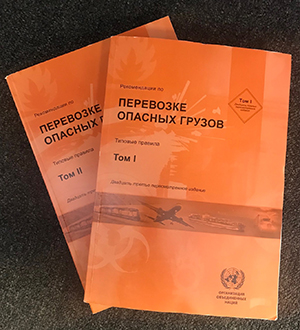
Секретариат Комитета экспертов ЭКОСОС ООН по перевозке опасных грузов и Согласованной на глобальном уровне Системе классификации опасностей и маркировки химической продукции (далее – Комитет) направил в Международную Ассоциацию по опасным грузам и контейнерам (НП «АСПОГ») русскоязычную версию 23-го пересмотренного издания Типовых правил ООН по перевозке опасных грузов (документ ST/SG/AC.10/1/Rev.23). Как известно, Типовые правила пересматриваются с периодичностью 1 раз в 2 года. Прежде всего, это связано с тем, что появляются новые грузы, не охваченные перечнями опасных грузов предыдущих редакций правил, разрабатываются и внедряются новые технологии перевозки и обработки опасных грузов, а также выявляются новые проблемы обеспечения безопасности при перевозке и обработке опасных грузов. Поправки к Типовым правилам, которые вошли в их 23-е пересмотренное издание, одобренные Комитетом на 11-й сессии 9 декабря 2022 года, касаются следующего: a) новых номеров и положений ООН, регламентирующих перевозку натрий-ионных батарей, устройств для рассеивания средств тушения, дисилана, галлия, содержащегося в изделиях, и трифторметилтетразол-натриевлй соли в ацетоне; b) ужесточения условий перевозки тетраметиламмония гидроксида, включая создание нового номера ООН для концентраций не менее 25%; c) внесения изменений в положения, регламентирующие перевозку транспортных средств, работающих на батареях, включая создание трех новых номеров ООН; d) освобождения для перевозки опытных образцов и ограниченного количества промышленных прототипов элементов или батарей; e) нового специального положения, регламентирующего увеличение разрешенного объема перевозок в ограниченном количестве некоторых сжатых газов класса 2.2 без дополнительной опасности; f) более конкретных предельных значений для горячих концентрированных растворов аммония нитрата; g) освобождений для нитроцеллюлозных мембранных фильтров, используемых в быстродействующих устройствах тестирования, например, на беременность, инфекцию COVID-19 или иные инфекционные заболевания; h) уточнения по поводу фармацевтических продуктов (таких, как вакцины) в форме, готовой для применения; и i) обоснованного варианта требований в случае использования переработанной пластмассы в таре На курсах подготовки советников по безопасности перевозки опасных грузов, которые будут проведены в период с 8 по 12 апреля 2024 года, будет представлена презентация новых поправок, которые вошли в 23-е пересмотренное издание Типовых правил ООН по перевозке опасных грузов. | |
Советники по безопасности перевозки опасных грузов необходимы во всех компаниях, деятельность которых связана с перевозкой и обработкой опасных грузов | 26.03.2024 |
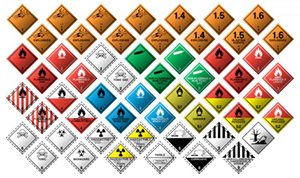
В период с 18 по 22 марта 2024 г. в Международном центре подготовки персонала (МЦПП) проведены курсы подготовки советников по безопасности перевозки опасных грузов. Учебные занятия проводились в комбинированном формате (аудиторные занятия в сочетании с занятиями с применением телекоммуникационной платформы). В таком же формате были проведены и выпускные экзамены. Выпускники представлены по их личным заявлениям к аттестации в качестве советников в Международной Ассоциации по опасным грузам и контейнерам (НП «АСПОГ»). Им в ближайшее время будут высланы удостоверения советников по перевозке опасных грузов нового образца, форма которого защищена патентом, а данные о советниках будут размещены на официальном сайте НП «АСПОГ». Обучение на курсах прошли сотрудники следующих компаний: АО «Усть-Лужский Контейнерный Терминал», ООО «Балтэко» и ООО «Каспийские судоходные линии». Следующие курсы подготовки советников по безопасности перевозки опасных грузов будут проведены в период с 8 по 12 апреля, и на них будут особо рассмотрены новейшие изменения в Типовых правилах ООН по перевозке опасных грузов. | |
Соглашение между регулирующими органами России и Китая вызвало вопросы у бизнеса | 15.03.2024 |
|
В соответствии с информацией, размещенной на официальном сайте Минтранса России, а также в ряде СМИ, 6 марта в Москве состоялись российско-китайские переговоры по вопросам организации перевозок опасных грузов автомобильным транспортом, на которых был согласован дополнительный перечень опасных грузов, допущенных к перевозке в соответствии с Соглашением от 11.10.2021 г. (далее – Соглашение) – «более 120 видов товарной номенклатуры, которые предлагается добавить в приложения к Соглашению по опасным грузам, что позволит значительно увеличить объемы перевозок грузов между Россией и Китаем». Данная информация вызвала достаточно много вопросов со стороны транспортных компаний, участвующих в перевозках опасных грузов между РФ и КНР, вопросы, в том числе, поступили и от членов нашей Ассоциации. В Соглашении указано: «Опасные грузы, допускаемые к международным автомобильным перевозкам в соответствии с таблицей А главы 3.2 приложения А к ДОПОГ, приведены в приложении 1 к настоящему соглашению». Как известно, таблица А главы 3.2 приложения А к ДОПОГ содержит более 3000 позиций, в то время как таблица 1 к Соглашению – только 22, к которым будет добавлено еще 120. Такая информация не дает правильного понимания, какие именно опасные грузы допускаются к перевозке, а какие – нет. Означает ли это, что опасные грузы, перечисленные в ДОПОГ, но не перечисленные в приложении к Соглашению, к перевозке допускаться не будут? А если будут, то какие ограничения, кроме ограничений в рамках правил ДОПОГ, могут налагаться на перевозку тех опасных грузов, которые поименованы в правилах, но не поименованы в Соглашении между ведомствами двух стран? Хочется обратить внимание на то, что, значительное количество опасных грузов перевозится в Россию из Китая в ограниченных количествах (краски, аэрозоли, бытовая химия и др.). Если следовать Соглашению, то на такие перевозки также могут налагаться запреты. Правильно было бы приглашать для участия в таких переговорах экспертов организаций, которые наиболее компетентны в вопросах перевозки опасных грузов, в частности, экспертов Международной ассоциации по опасным грузам и контейнерам, имеющей консультативный статус, в подкомитете экспертов по перевозке опасных грузов ООН. которые не только отражают интересы безопасности, но и интересы бизнеса. НП АСПОГ направило письмо в Министерство транспорта Российской Федерации | |
Программа обучения советников по безопасности перевозки опасных грузов постоянно совершенствуется | 29.02.2024 |

Эксперты Международной Ассоциации по опасным грузам и контейнерам провели углубленный анализ действующих международных правил, касающихся перевозки опасных грузов на автомобильном, внутреннем водном, железнодорожном и морском транспорте, а также соответствующих национальных законодательных актов и стандартов, и пришли к выводу, что в них существуют разночтения и противоречия, которые могут сказаться на качестве мультимодальных перевозок.Это касается, например, понятий «классификационный код» и «классификационный шифр», маркировки в виде табличек оранжевого цвета и определенных различий в трактовке ряда положений в международных и национальных правилах. С учетом этих обстоятельств подготовлена специализированная программа обучения специалистов, которые организуют перевозку опасных грузов в мультимодальном сообщении. Эта программа является дополнением к существующей программе подготовки советников по перевозке опасных грузов, и слушатели, пройдя обновленный курс, смогут свободно ориентироваться в применении национальных и международных правил. Очередные курсы подготовки советников будут проведены в МЦПП в период с 18 по 22 марта в гибридном формате дистанционно и в учебном классе в Санкт-Петербурге. | |
Важные мероприятия в 2024 году | |
|
26 Сентября 2024 года в Санкт-Петербурге состоится III съезд советников по безопасности перевозки опасных грузов. Важнейшим инструментом повышения безопасности и качества перевозки опасных грузов различными видами транспорта является наличие в компании должностных лиц, ответственных за перевозку опасных грузов. Как правило, это сотрудники, прошедшие специальную подготовку и имеющие опыт и знания, отвечающие требованиям, предъявляемым к советнику по безопасности перевозки опасных грузов. Наличие советника необходимо не только в компаниях, занимающихся перевозкой опасных грузов, но и в тех компаниях, которые готовят груз к перевозке, хранят и обрабатывают его. Более 20 лет Международная Ассоциация по опасным грузам и контейнерам (НП «АСПОГ»), имеющая в своем составе Международный центр подготовки персонала (МЦПП), обучает и аттестует таких специалистов с присвоением им звания советника. Программа Съезда будет включать обмен мнениями участников, анализ международных правил и вопросы гармонизации национальных требований с международными, обзор современных проблем, связанных с перевозкой опасных грузов и изменением логистических цепочек, выступления советников из разных регионов страны. Оператор мероприятия -Международный центр подготовки персонала. 4 июня 2024 года состоится вторая Международная конференция, посвященная альтернативным видам топлива, в рамках ежегодной Международной конференции «Смешанные перевозки опасных грузов» под девизом «Топливо будущего – путь к устойчивому развитию». Первая конференция, посвященная данной тематике, успешно проведенная 30 мая 2023 в г. Петергофе, привлекла внимание руководителей крупнейших российских компаний, занимающихся производством, транспортировкой и отгрузкой таких видов топлива, как сжиженный природный газ, водород, аммиак, метанол и др. За последнее время индустрия в этой области шагнула еще дальше, в особенности, в части разработки новых нормативных требований к проектированию, строительству новых заводов и терминалов, изготовлению новых типов оборудования и создания новых логистических цепочек с учетом сегодняшней геополитической ситуации. В связи с этим многие наши партнеры поддержали инициативу о проведении подобной конференции в 2024 году на той же площадке в г. Петергофе. Оператор мероприятия -Международный центр подготовки персонала. | |
Перевод международных стандартов | 19.02.2024 |
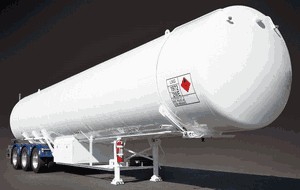 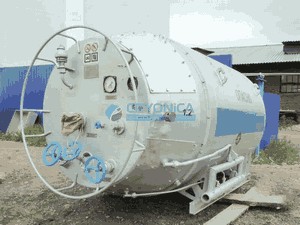
По поручению Федерального агентства по техническому регулированию и метрологии (Росстандарт) эксперты НП «АСПОГ» завершают перевод на русский язык более чем 23-х международных стандартов, разработанных и принятых в рамках деятельности технического комитета Международной организации по стандартизации ИСО/ТК 220 «Криогенные сосуды», в работе которого Ассоциация принимает непосредственное участие. Для выполнения перевода и редактирования русскоязычных текстов стандартов в НП «АСПОГ» была создана рабочая группа, в состав которой вошли эксперты, специализирующиеся в области криогенной техники, промышленной безопасности, материаловедения и прикладных сферах. Деятельность рабочей группы не подменяет деятельности национального технического комитета по стандартизации «Кислородное и криогенное оборудование» (ТК 114) и деятельности рабочих групп, входящих в состав технического комитета ИСО/ТК 220, а позволяет вырабатывать мнения по поводу того или иного стандарта и гармонизировать национальные требования с международными. | |
ТРЕБОВАНИЯ, РАЗРАБОТАННЫЕ МЕЖДУНАРОДНОЙ МОРСКОЙ ОРГАНИЗАЦИЕЙ ДЛЯ ОБЕСПЕЧЕНИЯ БЕЗОПАСНОЙ ПЕРЕВОЗКИ КОНТЕЙНЕРОВ | 12.02.2024 |
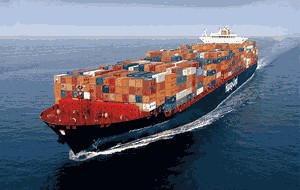
Международная морская организация (ИМО) уже давно работает над обеспечением безопасной перевозки контейнеров, включая разработку руководящих принципов по размещению контейнеров; обязательные требования СОЛАС по предоставлению проверенной массы брутто контейнера перед его погрузкой на судно; обязательное информирование о потере контейнеров (поправки к конвенциям SOLAS и MARPOL будут приняты в 2024 году). Cогласно информации ИМО Международной морской организацией были разработаны и приняты ряд требований по обеспечению безопасной перевозки контейнеров, а также разработано специальное руководство по упаковке и креплению груза в контейнерах. Международная конвенция ИМО по охране человеческой жизни на море (СОЛАС) в главе VI о перевозке грузов включает требования к размещению и креплению груза или грузовых единиц (например, контейнеров). Международная конвенция по безопасным контейнерам (КБК) (CSC) устанавливает процедуры испытаний и соответствующие требования к прочности контейнеров. Международный кодекс морских опасных грузов (IMDG) является обязательным международным кодексом морской перевозки опасных грузов в упакованном виде с целью повышения и гармонизации безопасной перевозки опасных грузов и предотвращения загрязнения окружающей среды. В Кодексе подробно изложены требования, применимые к каждому отдельному веществу, материалу или изделию, охватывающие такие вопросы, как упаковка, контейнерные перевозки и размещение, с особым упором на разделение несовместимых веществ. ИМО совместно с Международной организацией труда (МОТ) и Европейской экономической комиссией ООН (ЕЭК ООН) разработали необязательный глобальный кодекс практики обработки и упаковки грузовых транспортных единиц, который может в равной степени применяться как к морскому, так и к сухопутному транспорту. транспорт. Кодекс ГТЕ (CTU) в настоящее время пересматривается тремя вышеупомянутыми агентствами при содействии отрасли. Кроме того, ИМО также приняла Кодекс безопасной практики размещения и крепления грузов (Кодекс CSS). В связи с транспортировкой ГТЕ по запросу ИМО Международная организация по стандартизации (ISO) пересмотрела соответствующие стандарты ISO ( ISO 1161 : Грузовые контейнеры серии 1 – Угловые вставки – Спецификации; и ISO 3874:2017 : Грузовые контейнеры серии 1 – Обработка и крепление), чтобы внедрить самые последние достижения в области оборудования для обработки и крепления контейнеров с учетом последнего поколения контейнеровозов с проектной вместимостью более 18 000 TEU, а также с учетом конструкции и прочностных характеристик автоматических твистлоков. С 1 июля 2016 года вступили в силу требования по проверке массы брутто груженого контейнера в соответствии с Международной конвенцией по охране человеческой жизни на море (СОЛАС). Знание точной массы брутто груженого контейнера имеет решающее значение для обеспечения правильной укладки и штабелирования, а также для предотвращения обрушения штабелей контейнеров или их потери за борт. Это важная мера безопасности, которая направлена на охрану жизней, предотвращение травм и уничтожения имущества. В Конвенции СОЛАС всегда существовало требование декларировать массу брутто груза и контейнеров, но так называемое правило проверенной массы брутто добавило дополнительные требования проверки массы. Это необходимо для того, чтобы заявленная грузоотправителем масса точно отражала полную массу груженого контейнера. Основы безопасной перевозки опасных грузов в контейнерах, международные конвенции КБК-72 и КТК-72, стандарты ИСО по контейнерам изучаются в Международном центре подготовки персонала (МЦПП) слушателями курсов по программе «Советник по безопасности перевозки опасных грузов». Проведение очередных курсов по программе «Советник по безопасности перевозки опасных грузов» планируется с 18 по 22 марта 2024 года. III Съезд Советников по безопасности перевозки опасных грузов состоится 2 апреля 2024 года. Форма заявки на участие в съезде находится здесь. | |
Новое 10-е пересмотренное издание Согласованной на глобальном уровне системы классификации опасности и маркировки химической продукции (СГС) | 01.02.2024 |
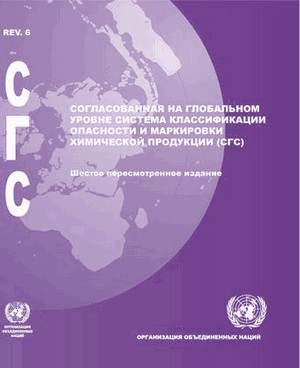
В библиотеку Международной Ассоциации по опасным грузами и контейнерам поступило 10-е пересмотренное издание Согласованной на глобальном уровне системы классификации опасности и маркировки химической продукции (СГС), направленное Секретариатом ООН в адрес НП «АСПОГ» на русском языке. Хотя СГС в первую очередь предназначена для государственных и региональных учреждений, она обеспечивает также достаточный контекст и включает руководящие принципы для работников промышленности, которые в конечном счете будут обеспечивать соблюдение принятых требований. Наличие информации о химической продукции, связанных с ней видов опасности и способах защиты людей заложит основу для разработки национальных программ безопасного обращения с химической продукцией. Широкое внедрение системы надлежащего обращения с химической продукцией по всему миру позволит лучше защитить мировое население и окружающую среду, никак не ограничивая пользу от применения химической продукции. Согласование в этой области также положительно скажется на упрощении процедур международной торговли в результате обеспечения большей последовательности в национальных требованиях к классификации опасности химической продукции и информации о ней, которые должны соблюдаться предприятиями, участвующими в международной торговле. СГС является одним из важнейших документов, которые изучают слушатели при прохождении обучения в Международном центре подготовки персонала по программе «Советник по безопасности перевозки опасных грузов». Очередной Съезд советников по безопасности перевозки опасных грузов состоится 2 апреля 2024 года. | |
43 сессия Комитета по вопросам безопасности ВОПОГ | 19.01.2024 |
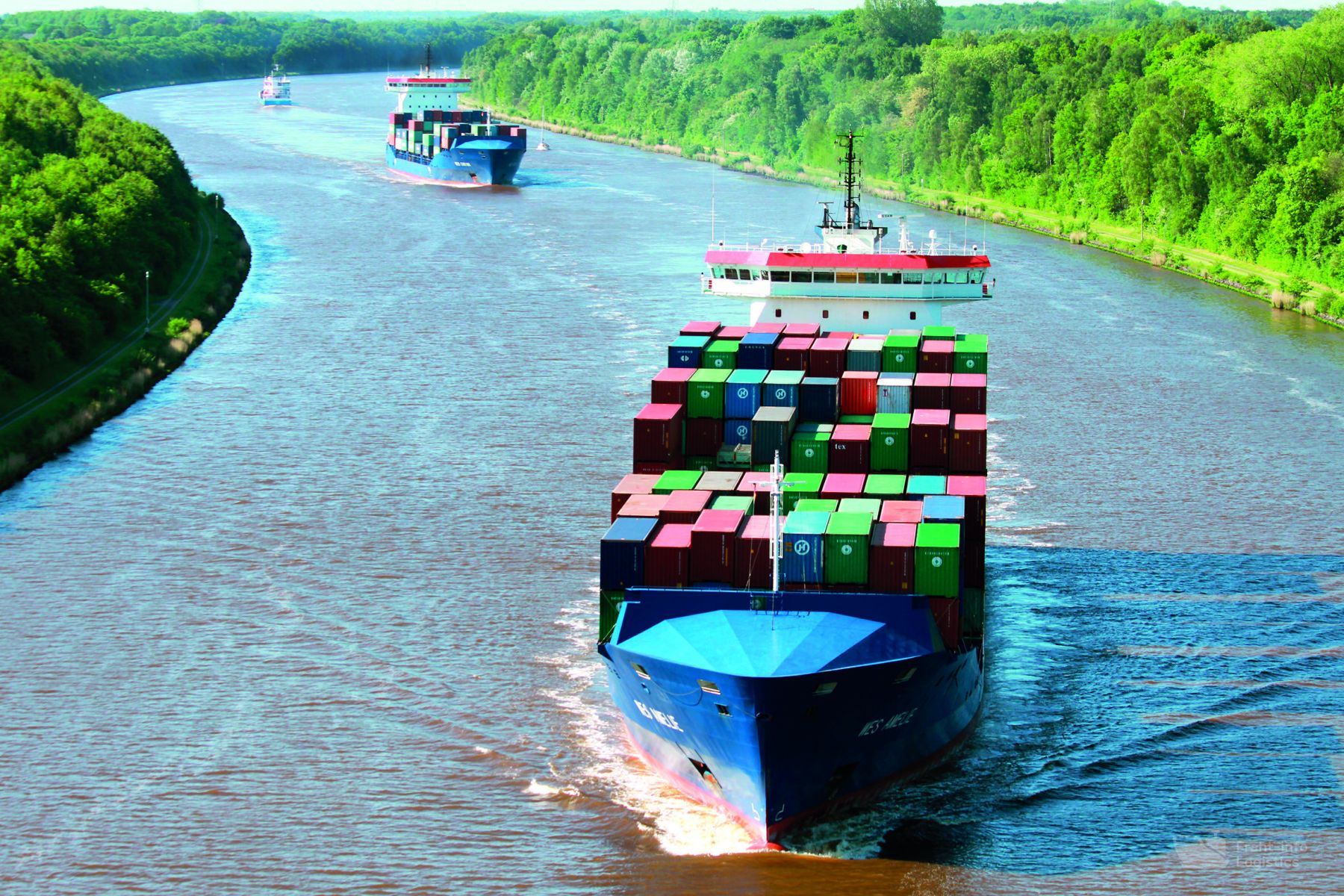 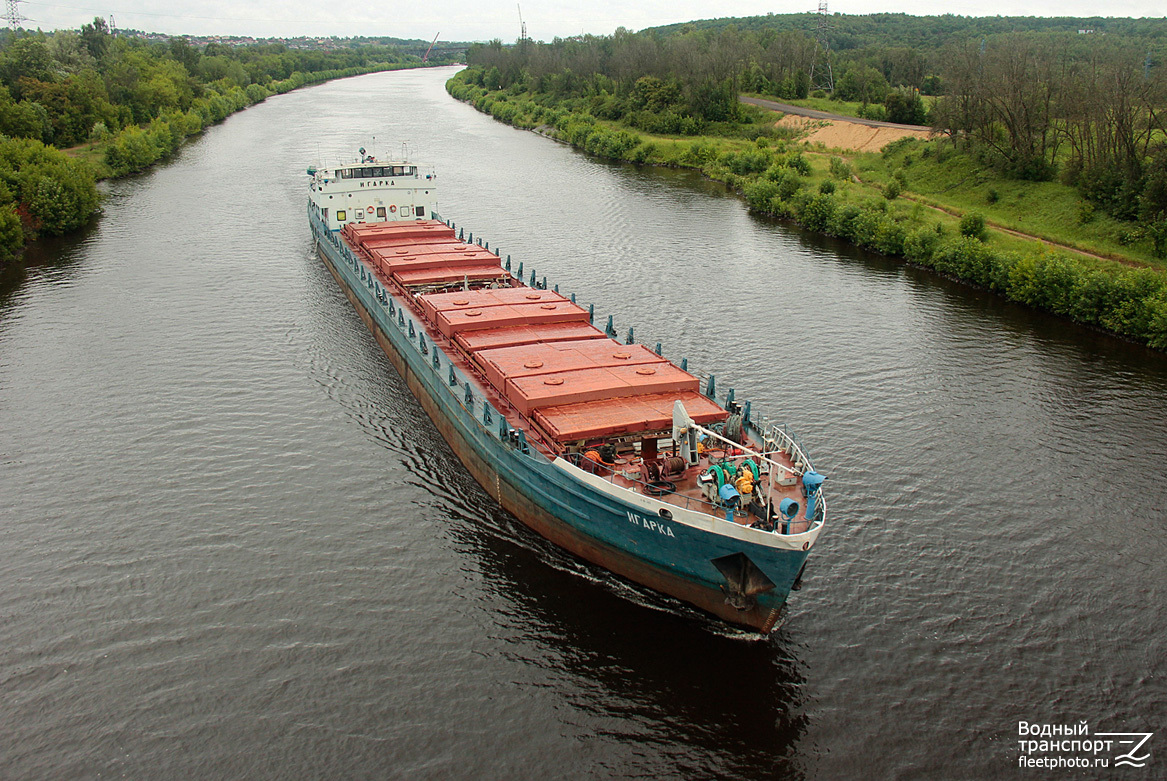
Во Дворце Наций в Женеве с 22 по 26 января 2024 года будет проходить Совместное совещание экспертов по Правилам, прилагаемым к Европейскому соглашению о международной перевозке опасных грузов по внутренним водным путям (ВОПОГ) (Комитет по вопросам безопасности ВОПОГ). В повестке дня совещания такие пункты, как выборы должностных лиц на 2024 год, вопросы, вытекающие из работы органов ООН и других организаций, применение ВОПОГ, поправки к Правилам ВОПОГ, доклады неформальных рабочих групп, обеспечение устойчивого развития на период до 2030 года и др. В МЦПП реализуются учебные программы подготовки экспертов ВОПОГ по основным курсам (перевозка танкерами и перевозка сухих грузов), комбинированному курсу, а также специализированным курсам (газы и химические продукты). Ближайшие курсы подготовки экспертов ВОПОГ состоятся в период с 29 января по 02 февраля 2024 г. | |
Почему возникают чрезвычайные ситуации на новых заводах? | 18.01.20244 |
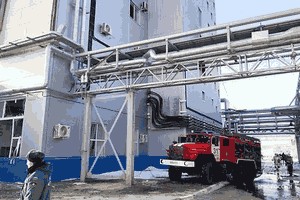 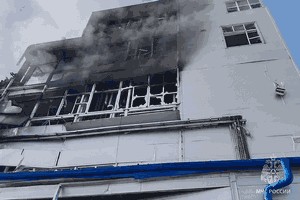
По информации официальных российских источников, 17 января в городе Шахты Ростовской области на заводе по производству первичного полиэфирного волокна «Авангард» произошел взрыв, после чего загорелся цех по производству наполнителей для матрасов и подушек. Площадь пожара, который был ликвидирован спасательными службами, составляла 360 квадратных метров. Известно о 10 пострадавших. Следственный комитет Ростовской области организовал проверку в связи с данным событием по статье «Нарушение условий охраны труда». По некоторым данным, инициирующим фактором ЧП стало вопиющее нарушение техники безопасности при эксплуатации арматуры на технологической линии одного из компонентов, применяемых в производстве. Официальная причина взрыва и пожара до настоящего времени не установлена, да и установить ее достаточно сложно, как и установить виновных, которые не соблюдали необходимые меры предосторожности. На многих предприятиях и заводах не уделяется должного внимания подготовке сотрудников к работе с различными опасными компонентами и средами, используемыми в производственном цикле. Часто подготовка специалистов проводится по формальным программам и с формальной оценкой их знаний. На предприятиях не всегда хватает опытных инструкторов и лекторов в заводских учебно-производственных комбинатах, обладающих специальными знаниями в области применения тех или иных опасных веществ, продуктов и компонентов. Недавний пожар в Санкт-Петербурге на складе Wildberries и предыдущие пожары на подобных складах также говорят о том, что их менеджеры и сотрудники не проходят должную подготовку и не получают практических навыков в вопросах предотвращения аварийных ситуаций и оценки риска их возникновения. Международный центр подготовки персонала (МЦПП) обращает внимание руководителей предприятий и организаций, чьи технологические процессы связаны с использованием опасных веществ, их складированием и дистрибьюцией, воспользоваться возможностью подготовки своих специалистов в МЦПП по специально разработанным программам, а также внедрять в штаты предприятий советников по безопасности работ с опасными грузами и с химическими веществами. 2 апреля 2024 года в Санкт-Петербурге состоится крупное мероприятие, посвященное вопросам подготовки советников и широкого распространения этого института на различных предприятиях и в организациях. | |
Новая глава МК МПОГ | 18.01.2024 |
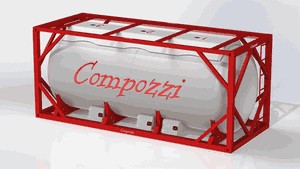
В соответствии с резолюцией ИМО MSC.501(105) в текст Международного кодекса морской перевозки опасных грузов (МК МПОГ) введена новая глава 6.10 «Требования к конструкции, изготовлению, проверке и испытаниям переносных цистерн с корпусом из армированных волокном пластмасс (АВП)». Ранее такая глава под номером 6.9 была включена в 22-ю редакцию Типовых правил ООН по перевозке опасных грузов ST/SG/АC.10/Rev.22 (Vol. II). Об истории первого в России танк-контейнера с цистерной из композитных материалов и предложения Российской Федерации о внесении в МК МПОГ требований к изготовлению переносных цистерн с сосудом из композитных материалов можно ознакомиться в сообщении на нашем сайте от 01.12.2023 г. Следует заметить, что в настоящее время в Подкомитете экспертов ЭКОСОС ООН по перевозке опасных грузов завершено рассмотрение требований к сервисному оборудованию, изготовленному из композитных материалов, что также послужило причиной дополнения Типовых правил ООН по перевозке опасных грузов требованиями к данному оборудованию. В ближайшее время, как мы полагаем, раздел, касающийся сервисного оборудования из композитов, появится также и в МК МПОГ. Инициатором создания новых правил явилась Российская Федерация, а руководителем неформальной группы Подкомитета экспертов ООН, в рамках которой разрабатывались требования к цистернам из композитных материалов является директор Центра технологий материалов Сколковского института науки и технологий Сергеичев И.С. Эксперты НП «АСПОГ» также активно участвовали в разработке новых глав в рамках деятельности Подкомитета экспертов ЭКОСОС ООН по перевозке опасных грузов, где Ассоциация имеет консультативный статус. | |
К вопросу о размещении хранилищ некоторых опасных грузов в портовых зонах | 11.01.2024 |
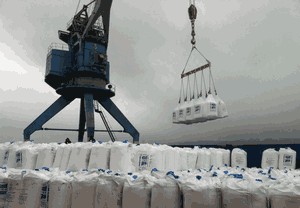
В соответствии с Федеральным законом от 19.12.2023 № 613-ФЗ «О внесении изменений в некоторые законодательные акты Российской Федерации» подпункт 2) пункта 15 стати 65 Федерального закона от 03.06.2006 № 74-ФЗ «Водный кодекс Российской Федерации», определяющий запреты на определенные виды деятельности в границах водоохранных зон, сформулирован следующим образом (изменение выделено курсивом): 2) размещение кладбищ, скотомогильников, объектов размещения отходов производства и потребления, химических, взрывчатых, токсичных, отравляющих и ядовитых веществ (за исключением специализированных хранилищ аммиака, метанола, аммиачной селитры и нитрата калия на территориях морских портов, перечень которых утверждается Правительством Российской Федерации, за пределами границ прибрежных защитных полос), пунктов захоронения радиоактивных отходов, а также загрязнение территории загрязняющими веществами, предельно допустимые концентрации которых в водах водных объектов рыбохозяйственного значения не установлены. В соответствии с определением п. 11 статьи 65 Водного кодекса Российской Федерации ширина прибрежной защитной полосы устанавливается в зависимости от уклона берега водного объекта и составляет тридцать метров для обратного или нулевого уклона, сорок метров для уклона до трех градусов и пятьдесят метров для уклона три и более градуса. Таким образом, на основании решения Правительства Российской Федерации специализированные хранилища аммиака, метанола, аммиачной селитры и нитрата калия могут размещаться на территории морского порта на удалении 50 метров от берега и более. Для принятия обоснованного решения проекты хранилищ должны проходить государственную экологическую экспертизу. Данное положение вступило в силу 30 декабря 2023 года. По мнению экспертов НП «АСПОГ», необходимость внесения изменений в Водный кодекс Российской Федерации продиктован значительным увеличением объемов перевозок опасных грузов, включая аммиачную селитру, через морские порты России. Как известно, многие грузовые потоки поменяли свои направления, причем, многие из них покинули порты Прибалтики. Вместе с тем, изменения в Водном кодексе потребуют изменений и в существующей нормативной базе, регулирующей перевалку опасных грузов в морских портах. Хочется заметить, что многие документы, входящие в эту нормативную базу, устарели и не соответствуют международным регламентам. Международная Ассоциация по опасным грузам и контейнерам неоднократно предлагала провести ревизию нормативных документов, регламентирующих перевозку опасных грузов на морском и речном транспорте. | |
Поправки к Международному кодексу морской перевозки опасных грузов вступают в силу с 1 января 2024 года | 18.12.2023 |
|
Международный кодекс морской перевозки опасных грузов (МК МПОГ) переиздается каждые 2 года. Очередная редакция документа, включающая комплект поправок 41-22, которая с 1 января 2023 года применялась Администрациями полностью или частично на добровольной основе, становится обязательной с 1 января 2024 года. Первоначально Кодекс, принятый в 1965 году, имел статус рекомендательного документа. В 2002 году Генеральная Ассамблея Международной Морской Организации (ИМО) на своей 17-й сессии изменила этот статус на обязательный с 1 января 2004 года. При этом отдельные части Кодекса остались рекомендательными. Все предложения по внесению изменений и поправок в МК МПОГ формируются на площадке Подкомитета ИМО по перевозке грузов и контейнеров ССС (ранее данный Подкомитет назывался Подкомитетом по опасным грузам и контейнерам). После принятия Подкомитетом ССС соответствующих решений они передаются в комитет по безопасности на море ИМО (КБМ) на утверждение. Поправки имеют двойной номер: первые 2 цифры указывают на очередной номер поправок, вторые – на год их принятия. Следует отметить, что все изменения, касающиеся перевозки опасных грузов, которые принимаются в ИМО, согласовываются с Подкомитетом экспертов ЭКОСОС ООН по перевозке опасных грузов. При этом сформирована постоянно действующая специальная рабочая группа, целью которой является гармонизация правил ИМО и Рекомендаций ООН по перевозке опасных грузов, включая Согласованную на глобальном уровне Систему классификации опасности и маркировки химической продукции (СГС). Принятие новых поправок требует их дополнительного изучения и отражения в национальных требованиях и регламентах, касающихся перевозки опасных грузов.Международный центр подготовки персонала уже внес изменения и дополнения в программы подготовки специалистов по перевозке опасных грузов с учетом новых положений МК МПОГ и приглашает слушателей пройти повышение квалификации в 2024 году. | |
Метан как горючее для ракет космического назначения | 13.12.2023 |
 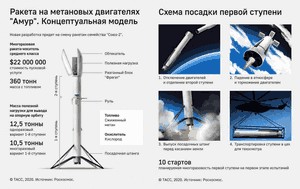
По сообщению ряда СМИ, в Китайской Народной Республике произведен успешный запуск ракеты космического назначения компании Landspace. Главной особенностью данной ракеты, которая вывела на орбиту 3 спутника, является то, что в качестве ракетного горючего в ней использован жидкий метан, при этом окислителем является жидкий кислород. Это уже третий запуск ракеты Zhuque-2, первый из которых был неудачным, второй состоялся без полезной нагрузки. Компания Landspace планирует запустить три ракеты Zhuque-2 в 2024 году, шесть в 2025 году и 12 в 2026 году. Несомненно, это большой успех китайской космонавтики. В Российской Федерации также проводятся работы по созданию ракеты, двигатели которой работают на метане. Разрабатываемый по одному из проектов носитель, получивший наименование Амур-СПГ, сможет выводить на околоземные орбиты полезную нагрузку массой от 9,5 до 12 тонн. Первая ступень ракеты будет многоразовой. Для работы ракеты на метане нужны новые двигатели, над разработкой которых трудятся специалисты ряда организаций. Международная Ассоциация по опасным грузам и контейнерам 30 мая в г. Петергофе провела XVII Международную конференцию «Мультимодальные перевозки опасных грузов. Топливо будущего. Путь к устойчивому развитию», где обсуждались вопросы применения метана в качестве топлива. Участники конференции отметили перспективность этого энергоносителя. Обсуждение возможностей применения метана в различных областях (космонавтика, транспорт, энергетика) на равных с другими перспективными видами топлива будет продолжено на очередной конференции «Топливо будущего – путь к устойчивому развитию», которая состоится 4 июня 2024 года. | |
Является ли водка опасным грузом? | 08.12.2023 |
|
Многие бытовые продукты, которые имеют повседневное применение, могут представлять опасность для человека и, при определенных условиях, их следует рассматривать как опасные грузы, которые должны затариваться и перевозиться в соответствии с международными и национальными правилами перевозки опасных грузов на различных видах транспорта. При этом некоторые международные правила, как, например, правила, прилагаемые к Соглашению о международной дорожной перевозке опасных грузов (ДОПОГ), применяются в качестве национальных правил. В преддверие Нового года увеличивается объем перевозок спиртосодержащей продукции. Зачастую такая продукция перевозится в контейнерах на борту морских и речных судов. При этом у грузоотправителей и транспортных компаний, сотрудники которых не обладают знанием правил перевозки опасных грузов, возникают затруднения в определении того, является ли спиртосодержащий продукт опасным грузом, или не является. В связи с этим в случаях, когда правилами перевозки такой продукт не рассматривается как опасный груз, его предъявляют к перевозке именно как груз опасный, и наоборот, в случаях, когда спиртосодержащий продукт правилами определен как опасный груз, его предъявляют к перевозке и перевозят как неопасный. В перечнях опасных грузов Типовых правил ООН по перевозке опасных грузов и базирующихся на них правил, сформулированных в Международном кодексе морских перевозок опасных грузов (МК МПОГ), ДОПОГ и др. спиртосодержащая продукция фигурирует под номером ООН 3065: НАПИТКИ АЛКОГОЛЬНЫЕ, содержащие более 70% спирта по объему, класс опасности 3 (легковоспламеняющиеся грузы), группа упаковки II (вещества со средней степенью опасности) и НАПИТКИ АЛКОГОЛЬНЫЕ, содержащие более 24%, но не более 70% спирта по объему, класс опасности 3 (легковоспламеняющиеся грузы), группа упаковки III (вещества с низкой степенью опасности). В отношении напитков, отнесенных ко II группе упаковки, применяется специальное положение 146, в отношении напитков, отнесенных к III группе упаковки, применяются специальные положения 144, 145 и 247. Специальное положение 144 гласит: Водный раствор, содержащий не более 24% спирта по объему, не подпадает под действие настоящих Правил. Специальное положение 145 устанавливает, что алкогольные напитки, отнесенные к группе упаковки III, перевозимые в сосудах вместимостью не более 250 л, за исключением воздушной перевозки, не подпадают под действие настоящих Правил. В специальном положении 146 указано: Алкогольные напитки, отнесенные к группе упаковки II, перевозимые в сосудах вместимостью не более 5 л, за исключением воздушной и морской перевозки, не подпадают под действие настоящих Правил.Специальное положение 247 относится к перевозке алкогольных напитков в рамках производственного процесса. Таким образом, если говорить о водке, содержащей 40% спирта по объему, и помещаемой в обычную потребительскую тару, то на основании специального положения 145 она не подпадает под действие Правил перевозки опасных грузов, в отличие от спирта. Однако это не исключает необходимости знаний и опыта обращения с таким популярным продуктом и соблюдения требований к его упаковке, хранению и обработке. Хотя водка не относится к опасным грузам с точки зрения международных правил, эта продукция требует к себе особого внимания с точки зрения происхождения, чистоты упаковки и применения, исключающего нанесение вреда здоровью. Эксперты по перевозке опасных грузов ЭКОСОС ООН обращают особое внимание на то, что специальное обучение в области обращения с опасными грузами должны проходить сотрудники не только специализированных компаний (грузоотправителей, перевозчиков, транспортно-логистических фирм), но также и представители тех компаний, которые доставляют бытовую продукцию потребителям. Международный центр подготовки персонала проводит на регулярной основе обучение сотрудников таких компаний, в т.ч. работающих на площадках электронной торговли. Обучение в значительной мере повысит безопасность при доставке потребителям продукции, представляющей опасность. | |
НАЗНАЧЕН НОВЫЙ ГЕНЕРАЛЬНЫЙ СЕКРЕТАРЬ МЕЖДУНАРОДНОЙ МОРСКОЙ ОРГАНИЗАЦИИ (ИМО) | 07.12.2023 |
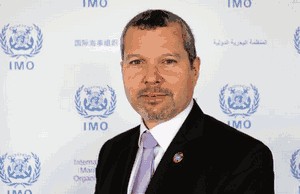
Арсенио Антонио Домингес Веласко утвержден на должность Генерального секретаря Международной морской организации (ИМО). Ассамблея ИМО1 единогласно одобрила (30 ноября) решение Совета ИМО 2 на своей 129-й сессии (C129) назначить Арсенио Антонио Домингес Веласко на должность Генерального секретаря ИМО. Домингес Веласко вступит в должность с 1 января 2024 года на четырехлетний срок до 31 декабря 2027 года. Арсенио Антонио Домингес Веласко станет 10-м избранным Генеральным секретарем Организации. Домингес Веласко до настоящего времени являлся Главой Комитета по защите морской среды ИМО, с 2017 года находился в должности руководителя аппарата Генерального секретаря Китака Лима, в 2020 году был назначен директором административного отдела ИМО. Из его биографии известно, что в 1988 году Домингес Веласко получил степень бакалавра наук в Институте Фермина Наудеу в Панаме, а затем продолжил изучать судостроение в Университете Веракруса (Мексика), который окончил в 1995 году. Арсенио Антонио Домингес Веласко также получил степень магистра бизнес-администрирования в Университете Халла и сертификат о высшем образовании в области международного права и европейской политики в Университете Биркбека (оба - Великобритания). Морская карьера Арсенио Антонио Домингес Веласко началась в 1996 году в качестве портового инженера на верфи Armadores del Caribe в Панаме, а затем он стал помощником менеджера по сухому доку на верфи Braswell. Арсенио Домингес Веласко представлял государство Панама и был назначен постоянным представителем Панамы при ИМО в период с 2014 по 2017 год. Домингес Веласко возглавлял Комитет ИМО по защите морской среды (MEPC), а в 2015 году возглавил Технический комитет 25-й сессии Ассамблеи ИМО. Арсенио Антонио Домингес Веласко также возглавлял рабочую группу по морской безопасности – пиратству и вооруженному грабежу под эгидой Комитета по морской безопасности ИМО. Домингес Веласко сказал: "Я готов отдать все свои силы продолжению той огромной работы, которую проделали мои предшественники, превращая то, что уже является значительной и влиятельной организацией, в учреждение, которое будет преуспевать в выполнении всей своей программы - от безопасности до декарбонизации, от цифровизации до человеческого фактора. Международная морская организация не только смотрит в будущее, но и делает все возможное, относясь со всем уважением к изменениям, участию в деятельности ИМО самых различных людей независимо от их положения и информационной прозрачности; являясь организацией, которая предана своим людям, от профессиональных сотрудников, которые составляют Секретариат ИМО, до наших моряков по всему миру, и, возможно, самое главное, которая посвящает свою деятельность молодым поколениям, тем, кому мы обязаны передать планету, которая станет лучшим местом для жизни." Источник: ИМО IDGCA поздравляет господина Арсенио Антонио Домингес Веласко с утверждением на должность Генерального секретаря Международной морской организации и желает успешной работы на этом посту. 1.Ассамблея ИМО - это высший руководящий орган Организации. В его состав входят 40 ведущих морских стран, и он собирается раз в два года на очередные сессии. Ассамблея отвечает за утверждение программы работы, голосование по бюджету и определение финансовых механизмов Организации. Ассамблея также избирает Совет. 2.Совет ИМО избирается Ассамблеей на двухлетний срок, начинающийся после каждой очередной сессии Ассамблеи. Совет является исполнительным органом ИМО и отвечает за надзор за работой Организации. При этом страны разделены на категории А (10 государств, проявляющих наибольшую заинтересованность в предоставлении международных морских перевозок), B (10 государств, проявляющих наибольший интерес к международной морской торговле) и С (20 государств, не избранных согласно пунктам (a) или (b) выше, которые имеют особые интересы в морском транспорте или судоходстве и избрание которых в Совет обеспечит представительство всех основных географических регионов мира). | |
Композитные материалы пробивают дорогу | 01.12.2023 |
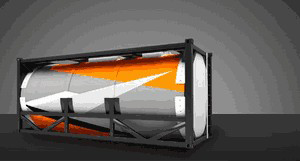
Композитные материалы находят свое применение при изготовлении оборудования для перевозки опасных грузов все больше и больше. В 22-ю редакцию Типовых правил ООН по перевозке опасных грузов была внесена новая глава 6.9, в которой излагаются требования к переносным цистернам из композитных материалов. На последней сессии Подкомитета экспертов ЭКОСОС ООН по перевозке опасных грузов, которая завершилась в Женеве 1 декабря, одобрен новый раздел Типовых правил 6.9.3, касающийся сервисного оборудования переносных цистерн, изготовляемого из композитных материалов и комбинированных (металлокомпозитных) материалов. Разработаны также новые требования к испытаниям композитных материалов, которые войдут в Руководство по испытаниям и критериям ООН. Инициатором предложений по данному применению композитных материалов является Российская Федерация. Со стороны РФ также поступило предложение о расширении линейки опасных грузов, которые могут перевозиться в переносных цистернах из композитных материалов, в частности, речь идет грузах 2 класса опасности (газы). Со стороны экспертов ООН имеется как положительная, так и отрицательная реакция. Понятно, что газы, как правило, перевозятся либо под высоким давлением, либо в сжиженном состоянии, и практика применения для газов переносных цистерн из композитных материалов очень ограничена. Интересно отметить, что еще в конце 90-х годов компания ООО «Металлокомпозит», возглавляемая генеральным директором Дмитрием Григорьевым, разработала проект контейнера-цистерны из композитных материалов для перевозки пропан-бутановой смеси с максимальным рабочим давлением 19 бар, изготовила прототип и провела его испытания. Проектная документация была одобрена Российским морским регистром судоходства. Базой для изготовления материала и самого изделия был один из институтов в Хотьково при техническом руководстве профессора. Александра Ермоленко. Примерно в это же время от имени РФ было подано предложение в Международную морскую организацию (ИМО) о разработке соответствующих требований и правил для внесения их в Международный кодекс морской перевозки опасных грузов (МК МПОГ) с целью обеспечения перевозки опасных грузов морем в переносных цистернах из композитных материалов. На сессии Подкомитета ИМО по перевозке опасных грузов и контейнеров разработчики нового типа контейнера-цистерны из композитных материалов продемонстрировали свои наработки, что получило общее одобрение данного направления. К сожалению, ввиду сложного переходного периода в РФ после проведения испытаний образца контейнера-цистерны работы были прекращены из-за отсутствия средств у компании ООО «Металлокомпозит. Спустя многие годы эти разработки получили новое продолжение и утверждение на уровне ООН и ИМО. Теперь держателем этого направления стал Сколковский институт науки и технологий. Эксперты НП «АСПОГ» полагают, что при разработке требований к переносным цистернам из композитных материалов для перевозки газов, как под давлением, так и сжиженных, будет учтен опыт и практика изготовления контейнера-цистерны из композитных материалов 90-х годов, включая и результаты испытаний первого в мире образца такого контейнера. Эксперты НП «АСПОГ» активно участвуют в деятельности всех рабочих групп по разработке требований к композитным материалам и конструкциям изделий из них и, вероятно, примут участие в разработке новых правил, поскольку некоторые из экспертов Ассоциации участвовали в разработке первого уникального контейнера-цистерны в 90-х годах. Очень жаль, что новые обладатели прав на изготовление переносных цистерн из композитных материалов не вспоминают тех людей, конструкторов и бизнесменов, которые в 90-е годы вложили в создание этого оборудования свои средства, силы, опыт и годы жизни. | |
Очередной инцидент на железных дорогах США | 24.11.2023 |
|
По сообщениям ряда СМИ в американском штате Кентукки сошли с рельсов 16 вагонов с расплавленной серой, причем два вагона получили повреждения, в результате чего произошел выброс вещества с последующим возгоранием. В соответствии с классификацией ООН СЕРА РАСПЛАВЛЕННАЯ имеет номер ООН 2448, подкласс опасности 4.1 – легковоспламеняющиеся твердые вещества, самореактивные вещества, твердые десенсебилизированные взрывчатые вещества и полимеризующиеся вещества. Температура самовоспламенения 190℃. При термодеструкции выделяется диоксид серы, который раздражает органы дыхания и слизистые оболочки глаз, вызывает спазм бронхов, при высоких концентрациях возможны удушье, отек легких, летальный исход. В соответствии с классификацией по Согласованной на глобальном уровне Системе классификации опасностей и маркировки химической продукции (СГС) это вещество является воспламеняющимся (2 класс СГС), вызывающим разъедание/раздражение кожи (2 класс СГС),вызывающим серьезное повреждение/раздражение глаз (2 класс, подкласс 2В СГС), обладающим избирательной токсичностью в отношении органов-мишеней и/или систем при многократном или продолжительном воздействии (2 класс СГС). Если в отношении серы расплавленной опасные свойства данного вещества описаны вполне конкретно, то этого нельзя сказать о сере в твердом состоянии (номер ООН 1350, подкласс опасности 4.1). Казалось бы, и здесь все очевидно: сера – опасное вещество. Но 242 специальное положение Типовых правил ООН по перевозке опасных грузов устанавливает следующее: Сера не подпадает под действие настоящих Правил, если она была доведена до определенной формы (например, перевозится в виде комков, гранул, таблеток, шариков или хлопьев). Аналогичные положения приведены в отраслевых правилах, регламентирующих перевозку опасных грузов на различных видах транспорта. В Международном кодексе морской перевозки навалочных грузов также фигурирует сера «опасная» и «неопасная». После глубокого анализа правил IDGCA планирует направить предложение в Подкомитет экспертов ООН. | |
Подготовка специалистов, работающих на нефтеналивных и СПГ терминалах | 21.11.2023 |

В период с 27 ноября по 01 декабря 2023 на базе МЦПП состоятся курсы подготовки специалистов для работы на морских нефтеналивных терминалах с присвоением квалификации «Грузовой мастер нефтеналивного терминала». Программа курсов основана на «Руководстве по мерам безопасности и общепринятой отраслевой практике для нефтяных терминалов», разработанное ООН с целью повышения безопасности нефтяных терминалов. В программу курсов включены темы по обеспечению безопасности на морских нефтяных терминалах, определенные национальным законодательством, положения международных конвенций, кодексов, соглашений и рекомендаций, методики оценки рисков при взаимодействии танкера с терминалом, требования по безопасности осуществления швартовных и грузовых операций и другие вопросы. Аналогичные курсы по подготовке специалистов для работы на морских СПГ терминалах с присвоением квалификации «Грузовой мастер СПГ терминала» состоятся в период с 22 по 26 января 2024 года. Наличие подготовленных специалистов - залог успешной и безопасной работы терминала. | |
63-Я СЕССИЯ ПОДКОМИТЕТА ЭКСПЕРТОВ ООН ПО ПЕРЕВОЗКЕ ОПАСНЫХ ГРУЗОВ | 17.11.2023 |
 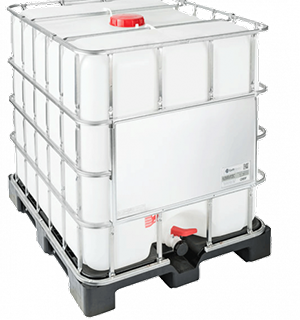
В Женеве, Швейцария, с 27 ноября по 6 декабря будет проходить 63-я сессия, пленарное заседание Подкомитета экспертов ООН по перевозке опасных грузов, а с 6 по 8 декабря заседание экспертов по СГС (Согласованной на глобальном уровне Системе классификации опасностей и маркировки химической продукции).Международная Ассоциация по опасным грузам и контейнерам в лице Генерального директора Огнева М.И. будет участвовать в работе Подкомитета экспертов ООН по перевозке опасных грузов.Заседание пройдет в соответствии с программой и представленными странами и неправительственными организациями официальными и неофициальными документами. В период сессии будут проходить заседания рабочих и неформальных групп. В частности, предполагается заседание неформальной рабочей группы по сервисному оборудованию из композитных материалов.На сессии предполагается оживленная дискуссия по вопросам перевозки определенных опасных грузов (в частности, перекиси водорода) в композитных (составных) IBC контейнерах. На предыдущей сессии М.И. Огнев выступал с предложением о внесении изменений в Типовые Правила ООН, касающиеся изготовления и использования IBC контейнеров и сервисного оборудования, которым укомплектовываются композитные IBC. Проблемы, связанные с эксплуатацией IBC и сервисного оборудования, также подняты представителем Голландии в информационном документе № UN/SCETDG/63/INF.9. Практика перевозки опасных грузов в IBC контейнерах свидетельствует о частых авариях при перевозке опасных грузов в данном типе IBC, который очень широко используется в мире при доставке опасных грузов. Возможно, на сессии будет затронут вопрос о подготовке специалистов и ответственных лиц, которые готовят транспортные документы и груз к отправке. Международная Ассоциация по опасным грузам и контейнерам, имеющая в своем составе Международный Центр подготовки персонала, уже более 20 лет готовит специалистов в сфере перевозки опасных грузов на высоком профессиональном уровне и передает при обучении практические навыки работы с опасными грузами и подготовки транспортных документов. Последняя группа специалистов успешно прошла аттестацию на звание советника по безопасности перевозки опасных грузов 17 ноября. Очередная подготовка и аттестация советников по безопасности перевозки опасных грузов планируется в декабре этого года. | |
АРКТИКА: НАСТОЯЩЕЕ И БУДУЩЕЕ | 09.11.2023 |
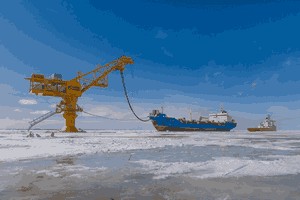 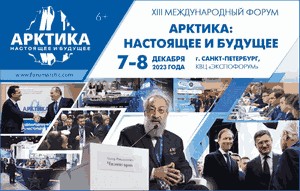
7-8 декабря в Санкт-Петербурге состоится XIII Международный форум «Арктика: настоящее и будущее». Освоение Северного морского пути и Арктики было во многом предопределено добычей и переработкой углеводородов. Активно строятся и развиваются терминалы сжиженного природного газа и нефтяные терминалы в Арктической зоне, без которых невозможно обслуживать морские суда, газовозы, химовозы, обеспечивающие перевозку грузов в Арктике. Строительство и эксплуатация морских терминалов в Арктике, плавучих, стационарных и погружных, связано с огромным риском загрязнения окружающей среды прибрежных арктических вод. Мировая статистика показывает, что основные аварии и происшествия происходят при взаимодействии "судно-берег" при грузовых операциях. Одним из основных факторов уменьшения риска возникновения аварий, кроме оснащения современным оборудованием и использования современных систем контроля является подготовка персонала. По приглашению Оргкомитета Форума в нем примут участие руководители Международной Ассоциации по опасным грузам и контейнерам. Планируется выступление с докладом. | |
Новые суда на СПГ | 03.11.2023 |
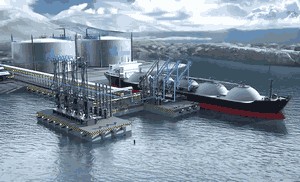 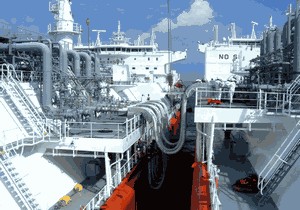
В Санкт-Петербурге проходит XII Петербургский международный газовый форум (ПМГФ-2023). Это одно из ключевых событий мировой газовой отрасли. В работе форума принимают участие руководители и эксперты Международной Ассоциации по опасным грузам и контейнерам (НП «АСПОГ»). На площадках Экспофорума, где проводится ПМФГ-2023, демонстрируется широкий спектр возможностей газовой отрасли, проводятся выставки, конференции, заседания, круглые столы, подписываются важные для российских и зарубежных предприятий соглашения. Окончательные итоги форума будут внимательно изучены экспертами НП «АСПОГ», и о результатах этой работы мы сообщим позднее, но пока хотелось бы отметить информацию, прозвучавшую на данном мероприятии, касающуюся перспективных разработок в транспортной отрасли, базирующихся на применении сжиженного природного газа (СПГ). В этой связи особый интерес вызывает информация ООО «Газпром СПГ технологии», касающаяся планов проектирования и строительства в ближайшее время баржи-бункеровщика и буксира-толкача на СПГ. С учетом современных тенденций развития СПГ-технологий, в т.ч. и на морском транспорте, в НП «АСПОГ» разработаны и успешно реализуются в дочерней структуре Партнерства – Международном центре подготовки персонала учебные программы подготовки грузовых мастеров (Loading master) и операторов морских терминалов СПГ. В программах учтены самые современные требования международных конвенций, правил и стандартов, применяемых в области перевозки и хранения СПГ, а также осуществления грузовых и бункеровочных операций в отношении этого перспективного энергоносителя. Выпускники, успешно прошедшие обучение и аттестацию, получают выпускные документы международного образца. | |
Повышение квалификации специалистов из Казахстана | 31.10.2023 |
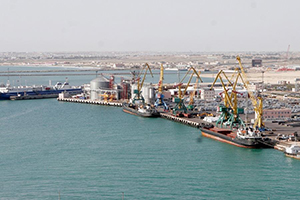
В течение ближайших 2-х недель в Международном центре подготовки персонала будут проходить подготовку специалисты, работающие в морских портах Казахстана, занимающиеся погрузочно-разгрузочной деятельностью. Программы подготовки специально разработаны по запросу представителей портов и предназначены для повышения квалификации стивидоров и тальманов. В основе программ лежат международные конвенции и соглашения, которые применимы для регулирования погрузочно-разгрузочной деятельности на территории порта. По итогам подготовки участникам курсов будут выданы удостоверения о повышении квалификации и международные сертификаты от Ассоциации по опасным грузам и контейнерам. Наличие подготовленных специалистов в порту вызывает доверие со стороны грузоотправителей, создает благоприятные условия для привлечения в порт грузовых потоков и увеличения судоходных линий. МЦПП уже более 20-ти лет проводит подготовку специалистов, работающих в морских портах России. Данная подготовка расширит географию портов, где успешно работают выпускники МЦПП. | |
Морские перевозки опасных грузов в большегрузных контейнерах | 27.10.2023 |
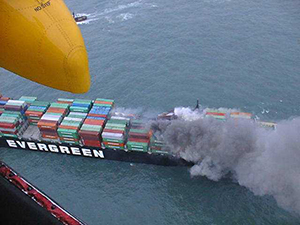 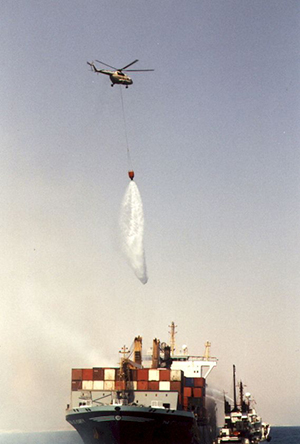
Вопросы предотвращения аварий, возникающих при перевозке грузов в контейнерах на морских судах, всегда находились в поле зрения Международной морской организации (ИМО). В штаб-квартире ИМО в Лондоне 23-26 октября было проведено заседание группы экспертов по формализованной оценке безопасности (Formal Safety Assessment, FSA), которое касалось проблематики обнаружения и борьбы с пожарами в грузовых трюмах и на грузовых палубах контейнерных судов. В ходе заседания были рассмотрены результаты исследования под названием ‛CARGOSAFE“, которое проводилось по заказу Европейского агентства по безопасности на море (EMSA). В исследовании проблема пожаробезопасности рассматривалась с точки зрения оценки риска, учитывающей 2 аспекта:
По результатам проделанной работы, как предполагают эксперты FSA, на основе предложенных вариантов оценки рисков и других материалов исследования ‛CARGOSAFE“ будет разработан проект поправок к главе II-2 Международной конвенции по охране человеческой жизни на море СОЛАС 74 и к Кодексу систем пожарной безопасности (FSS). Анализируя аварийные случаи, связанные с перевозкой опасных грузов в контейнерах, эксперты НП «АСПОГ» пришли к выводу, что причиной пожара часто бывает неправильная подготовка опасного груза к перевозке морем и неправильное оформление транспортных документов, а иногда и свойства опасного груза, которые не учтены при перевозке. Международная Ассоциация по опасным грузам и контейнерам внесла существенный вклад в решение проблемы обеспечения пожарной безопасности при осуществлении контейнерных перевозок. При сотрудничестве со специалистами ряда ведущих проектно-конструкторских организаций НП «АСПОГ» разработала концепцию и технологические решения по автоматическому тушению пожара внутри грузовых транспортных единиц. Но, несмотря на необходимость разработки новых типов оборудования для перевозки опасных грузов, НП «АСПОГ» считает, что самым действенным способом предотвращения аварийных случаев является качественная подготовка специалистов, в связи с чем НП «АСПОГ» уделяет особое внимание развитию и специальной программе подготовки специалистов. МЦПП, которому исполнилось в этом году 20 лет, подготовил уже более 3000 советников по опасным грузам которые работают во всех уголках России и за рубежом. | |
Курсы по подготовке Советников по безопасности перевозки опасных грузов | 27.10.2023 |
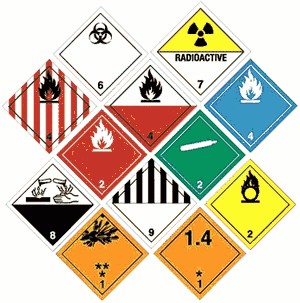
В период с 13 по 17 ноября 2023 года в Международном центре подготовки персонала состоятся очередные курсы по программе повышения квалификации «Советник по безопасности перевозки опасных грузов». Наличие на предприятиях подготовленных специалистов в области обращения с опасными грузами является залогом безопасной работы предприятия, вызывает доверие среди клиентов и партнеров. На курсы приглашаются представители организаций, чья деятельность связана с перевозкой опасных грузов, грузовыми и складскими операциями, По просьбе слушателей предстоящего курса, в аудиторию учебного центра приглашен представитель Ространснадзора, который разъяснит существующие требования лицензирования в области перевозки опасных грузов и погрузочно – разгрузочной деятельности. | |
Временные руководящие принципы по безопасности судов, использующих водород и аммиак в качестве судового топлива | 13.10.2023 |
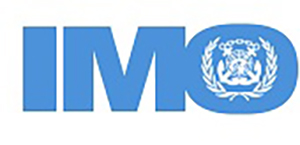
Подкомитет по перевозке грузов и контейнеров Международной морской организации (ИМО) на своей сессии, проведенной 20-29 сентября, в числе прочих вопросов рассмотрел проект временных руководящих принципов по безопасности судов, использующих водород и аммиак в качестве судового топлива. Принимая во внимание необходимость срочного предоставления такого рода руководств администрациям, судовладельцам и отрасли в целом, Подкомитет принял решение о созыве межсессионной рабочей группы в период с 9 по 13 сентября 2024 года (при условии одобрения Комитетом по безопасности на море (КБМ) на его 108-й сессии и одобрения Советом ИМО) для окончательной доработки руководящих принципов. Если позволит время, рабочей группе также будет предложено продолжить разработку проекта временных руководящих принципов для судов, использующих нефтяное топливо с низкой температурой вспышки. Подкомитет по перевозке грузов и контейнеров Международной морской организации (ИМО) на своей сессии, проведенной 20-29 сентября, в числе прочих вопросов рассмотрел проект временных руководящих принципов по безопасности судов, использующих водород и аммиак в качестве судового топлива. Принимая во внимание необходимость срочного предоставления такого рода руководств администрациям, судовладельцам и отрасли в целом, Подкомитет принял решение о созыве межсессионной рабочей группы в период с 9 по 13 сентября 2024 года (при условии одобрения Комитетом по безопасности на море (КБМ) на его 108-й сессии и одобрения Советом ИМО) для окончательной доработки руководящих принципов. Если позволит время, рабочей группе также будет предложено продолжить разработку проекта временных руководящих принципов для судов, использующих нефтяное топливо с низкой температурой вспышки. Решения Подкомитета подтвердили актуальность деятельности НП «АСПОГ» по поиску решений в области альтернативных видов топлива, в т.ч. судового, которые обсуждались на XVII Международной конференции «Мультимодальные перевозки опасных грузов. Топливо будущего. Путь к устойчивому развитию»,проведенной в мае 2023 года. . В следующем году НП «АСПОГ» планирует провести очередную конференцию в конце мая – начале июня, на которой опять будут подниматься проблемы перехода на новые сорта топлива. | |
Планы предупреждения и ликвидации разливов нефти и нефтепродуктов | 02.10.2023 |
|
Для каких объектов должны быть разработаны и утверждены Планы предупреждения и ликвидации разливов нефти и нефтепродуктов? В соответствии с требованиями постановления Правительства РФ от 31.12.2020 N 2451 «Об утверждении Правил организации мероприятий по предупреждению и ликвидации разливов нефти и нефтепродуктов на территории Российской Федерации, за исключением внутренних морских вод Российской Федерации и территориального моря Российской Федерации, а также о признании утратившими силу некоторых актов. Правительства Российской Федерации», критерии определения объектов, эксплуатация которых допускается при наличии таких Планов, следующие: а) максимальный расчетный объем разливов нефти и нефтепродуктов для объектов, расположенных (эксплуатируемых) на поверхностных водных объектах (включая их водоохранные зоны), за исключением морей и их отдельных частей, - 0,5 тонны и более; б) максимальный расчетный объем разливов нефти и нефтепродуктов для объектов, расположенных на сухопутной части территории Российской Федерации, - 3 тонны и более. Международный центр подготовки персонала, проводя обучение сотрудников нефтяных терминалов (руководителей, грузовых мастеров, грузовых операторов и сотрудников иных категорий, работающих на терминалах), предлагает также услуги по разработке Планов предупреждения и ликвидации разливов нефти и нефтепродуктов. Кроме самой разработки, предлагается методическое сопровождение процедуры утверждения таких планов. Процедура достаточно сложна, и важнейшую роль здесь играет планирование и проведение комплексных учений по подтверждению готовности эксплуатирующей организации к действиям по локализации и ликвидации максимального расчетного объема разлива нефти и нефтепродуктов. Именно по результатам этих учений комиссия по подтверждению готовности эксплуатирующей организации к действиям по локализации и ликвидации разливов нефти и нефтепродуктов, в состав которой включаются представители федеральных органов исполнительной власти, а также органов государственной власти субъектов Российской Федерации и органов местного самоуправления, на территориях которых расположен объект эксплуатирующей организации и председателем которой является представитель территориального органа Министерства Российской Федерации по делам гражданской обороны, чрезвычайным ситуациям и ликвидации последствий стихийных бедствий по соответствующему субъекту Российской Федерации, выносит соответствующее заключение. Обратившись в МЦПП или НП «АСПОГ» можно получить необходимые консультации. | |
Вниманию нефтяных компаний | 25.09.2023 |
|
В Санкт-Петербурге по адресу: ул. Маршала Говорова, д. 35А, офис 440, со 2 по 6 октября в Международном центре подготовки персонала будет проведено обучение руководителей морских нефтяных терминалов. На курсах будут изучаться требования обеспечения безопасности на морских нефтяных терминалах, определенные национальным законодательством, положения международных конвенций, кодексов, соглашений и рекомендаций, методики оценки рисков при взаимодействии танкера с терминалом, требования по безопасности осуществления швартовных и грузовых операций и другие вопросы. В процессе обучения будет возможность посещения одного из морских нефтяных терминалов. По результатам обучения слушатели получат удостоверения о повышении квалификации и международные сертификаты, выданные Международной Ассоциацией по опасным грузам и контейнерам. Программа подготовки может быть интересна как для руководителей морских нефтяных терминалов, так и для руководителей морских терминалов СПГ. В обучении будут принимать участие представители ведущих нефтяных компаний России. Преподаватели передадут слушателям уникальные практические навыки безопасной работы на морских нефтяных и газовых терминалах. | |
Взрыв цистерны с хлорной кислотой в США. Какие выводы | 15.09.2023 |
|
По сообщениям ряда СМИ, в американском штате Небраска взорвался вагон с хлорной кислотой, следовавший в железнодорожном составе. Хлорная кислота (химическая формула HClO4) применяется в ряде областей промышленности, в т.ч. при производстве ракетного топлива. Это вещество отличается высокой агрессивностью, нестабильностью, является сильным окислителем и, кроме того, оно несовместимо с рядом веществ в силу взрывоопасности при контакте с ними. В Перечне опасных грузов Типовых правил ООН по перевозке опасных грузов это вещество, в зависимости от концентрации в растворе, описано дважды:
Скорее всего, в вагоне, где произошел взрыв, находилась кислота с концентрацией, превышающей 50%. Анализируя данный инцидент, мы не можем не напомнить, что одной из основных причин участившихся чрезвычайных происшествий при осуществлении грузовых перевозок по железным дорогам США профсоюзы работников железнодорожного транспорта этой страны видят в недостаточной квалификации персонала. На российских железных дорогах подготовка и аттестация персонала, имеющего отношение к перевозке опасных грузов, регламентирована рядом нормативных документов. Этого нельзя сказать о морском и внутреннем водном транспорте России, ведь даже из положений, касающихся лицензирования перевозок опасных грузов и погрузочно-разгрузочной деятельности применительно к ним исчезли требования к подготовке лиц, ответственных за осуществление такой деятельности. МЦПП на постоянной основе проводит подготовку лиц, ответственных за работу с опасными грузами. Программа подготовки включает анализ аварий с опасными грузами. | |
Заседание Подкомитета ИМО по перевозке грузов и контейнеров (КГК) 20-29 сентября | 12.09.2023 |
|
9-я Сессия Подкомитета по Перевозке Грузов и Контейнеров (КГК) Международной Морской Организации (ИМО), который занимается вопросами перевозки упакованных опасных грузов, твердых массовых грузов, объемных газов и контейнеров, будет проходить в Лондоне 20-29 сентября. Ключевым вопросом Сессии Подкомитета КГК ИМО будет проблема безопасного применения судами альтернативных видов топлива. Будут обсуждаться следующие вопросы:
Поправки к Кодексу по безопасности судов, использующих газы или иные виды топлива с низкой температурой вспышки, включают «Положения безопасности для использования СУГ в качестве топлива». Новые требования безопасности связаны с использованием топлив с низкой температурой вспышки, которые влекут за собой и существенные затраты для судовладельцев, особенно для тех, кто вынужден переоборудовать существующие суда под новые стандарты и сорта топлива с низким содержанием углерода. | |
Разлив серной кислоты в Казахстане | 30.08.2023 |
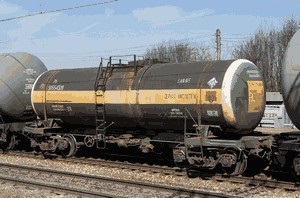
По информации сайта zakon.kz, 28 августа на станции «Экибастуз-2» возникла течь серной кислоты из железнодорожной цистерны. Общая масса этого груза, перевозимого в двух железнодорожных цистернах, составляет 78,3 тонны. Местные власти приняли меры для локализации инцидента и устранения его последствий. В частности, проведено обваловывание места разлива песком и известью, доставлено 2 железнодорожных цистерны для перекачки в них продукта. КИСЛОТА СЕРНАЯ, содержащая более 51% кислоты, является опасным грузом 8 класса опасности (коррозионные вещества), № ООН 1830. В соответствии с Правилами перевозки опасных грузов по железным дорогам стран Содружества, при перевозке этого вещества требуется прикрытие «0-0-1» (первая цифра - от ведущего локомотива, вторая цифра - от подталкивающего локомотива, третья цифра - от вагонов с людьми). При инцидентах с этим веществом на железных дорогах применяется аварийная карточка 801, согласно которой для его нейтрализации необходимо произвести следующие действия:
| |
Петербургский сжиженный газ пойдет по Северному морскому пути | 26.08.2023 |
|
14 августа танкер «Великий Новгород» в полном грузу направился в сторону Северного морского пути. Отгрузка сжиженного природного газа (СПГ) произведена на терминале Комплекс СПГ КС «Портовая», который расположен в Выборгском районе Ленинградской области на северо-восточном побережье Финского залива, в 60 км от г. Выборга и 7 км от границы с Финляндией. Оператором терминала является ООО «Газпром СПГ Портовая». Приятно отметить, что среди ответственных сотрудников грузового комплекса ООО «Газпром СПГ Портовая» работают грузовые мастера, прошедшие подготовку в Международном Центре подготовки персонала (МЦПП) и получившие международную квалификацию Terminal Loading Master. Программа обучения грузовых мастеров, работающих на терминале отгрузки сжиженных водородных газов была разработана МЦПП совместно с экспертами Международной Ассоциации по опасным грузам и контейнерам (НП «АСПОГ») и включала изучение международных конвенций, правил и стандартов применительно к терминалам СПГ. Впервые изучались международные стандарты ИСО по криогенной технике, перевод которых выполнен экспертами НП «АСПОГ» по заданию Российского Института стандартизации. Ближайшие курсы подготовки специалистов по программе Terminal Loading Master, будут проводиться 2-6 октября 2023 года в МЦПП. | |
Трагедия в Махачкале | 17.08.2023 |
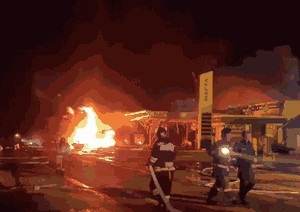
14 августа 2023 г. страну потрясла трагическая новость о взрыве в Махачкале. Взрыв унес жизни 35 человек, в больницах остаются 65 человек. Уже выявлены серьезные нарушения на АЗС, возбуждено уголовное дело по статье «Оказание услуг, не отвечающих требованиям безопасности жизни или здоровья потребителей, повлекшее по неосторожности смерть двух или более лиц». По сведениям газеты «Коммерсант», согласно первичным выводам следствия, в здании станции техобслуживания, расположенной рядом с АЗС, произошел пожар, затем огонь перекинулся на соседнее помещение, в котором, по предварительным данным, находилась аммиачная селитра в мешках, после чего произошел взрыв. Вызывает недоумение, почему рядом с АЗС находилось хранилище аммиачной селитры. Если это аммиачная селитра номер ООН 1942, класс опасности 5.1 – Окисляющие вещества, данное вещество относится к грузам повышенной опасности – грузам, которые могут использоваться не только по прямому назначению в качестве удобрения, но и в террористических целях. Трагедии, обусловленные безграмотным обращением с этим веществом, многочисленны, и к числу последних наиболее крупных катастроф относится взрыв в порту Бейрута 4 августа 2020 года. Подготовка ответственных специалистов, да и любых других лиц, чья деятельность непосредственно связана с перевозкой, хранением, погрузкой и выгрузкой опасных грузов, является крайне необходимой мерой для предотвращения аварий и инцидентов. В частности, достаточно странно, что в новом Постановлении Правительства РФ № 2111 от 30.11.2021 г. о лицензировании погрузочно-разгрузочной деятельности в морских и речных портах исчезли требования к подготовке специалистов по опасным грузам, хотя все международные конвенции, соглашения и правила требуют подготовки всех лиц, чья деятельность связана с опасными грузами. Компетентные органы, на которые Минтранс перекладывает все больше и больше ответственности и контрольных функций за осуществлением деятельности, связанной с перевозкой опасных грузов, вряд ли смогут обеспечить безопасность без самих участников транспортного процесса, имеющих достаточные знания и квалификацию для работы с опасными грузами. Международная Ассоциация по опасным грузам и контейнерам выражает глубокое соболезнование семьям погибших в связи с ужасной катастрофой. | |
Халатность, стечение обстоятельств или диверсия, что привело к взрыву на элеваторе? | 09.08.2023 |
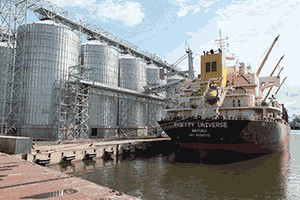
По сообщению CNN Turk и ряда СМИ от 07.08.2023 рядом с турецким портом Дериндже в провинции Коджаэли произошел взрыв. По информации агентства Anadolu, взрыв произошел в прибрежной части региона в районе 14:40 в элеваторе в момент загрузки судна с зерном. Губернатор провинции Коджаэли Седдар Явуз заявил, что в результате произошедшего есть пострадавшие. К месту взрыва направлены поисково-спасательные бригады. CNN Turk сообщило о пяти раненых. По последним данным пострадало не менее 13 человек, один из них умер в больнице. Повреждения получили 13 из 16 портовых зернохранилищ. Взрывная волна не затронула контейнерную часть порта. Незначительные повреждения получили соседние дома, добавил мэр Дериндже. Сейчас службы выгружают зерно из всех элеваторов. Айгюн отметил, что специалисты проверят, находился ли кто-то в момент взрыва внутри элеваторов. Дериндже находится в турецкой провинции Коджаэли, в 95 км от Стамбула. Порт расположен в Измитском заливе Мраморного моря. Как пишут турецкие СМИ, взрыв ощущался в соседнем городе Гельджук. Существует несколько версий причин взрыва. Гендиректор Турецкого зернового совета, которому принадлежали элеваторы, Ахмет Гюльдап назвал детонацию зерновой пыли причиной взрыва на элеваторе. По другой версии по сообщению ТАСС руководство Турции не исключает диверсию в качестве причины взрыва. Одной из возможных причин считают халатность при работе с зерном, хотя само по себе зерно не относится к опасным грузам по классификации ООН, за исключением жмыха и других специальных продуктов, которые классифицируются как опасные в соответствии с Типовыми Правилами ООН. В любом случае существуют внутренние нормативные регламенты, предписывающие безопасные процедуры работы на элеваторах, возможно, эти процедуры были нарушены и по этой причине произошел взрыв. | |
Ростехнадзор уточняет требования к осуществлению производственного контроля | 03.08.2023 |

По сообщению Федеральной службы по экологическому, технологическому и атомному надзору (Ростехнадзор), Правительство Российской Федерации приняло Постановление от 29.07.2023 г. № 1233 «О внесении изменений в Правила организации и осуществления производственного контроля за соблюдением требований промышленной безопасности». С текстом документа можно ознакомиться по ссылке Постановлением предусматривается точное распределение полномочий между лицом, ответственным за осуществление производственного контроля, и работниками, его осуществляющими. Документом предусмотрены дополнительные права работников (лиц), участвующих в осуществлении производственного контроля, в части готовности аварийно-спасательных служб (формирований) к действиям по локализации и ликвидации последствий аварии на опасном производственном объекте, контроля за организацией безопасной эксплуатации зданий и сооружений на опасных производственных объектах, за актуальностью информации и данных о состоянии промышленной безопасности в информационных системах эксплуатирующей организации. В соответствии с новой редакцией Правил, работник, на которого возложены функции лица, ответственного за осуществление производственного контроля, имеет право контролировать готовность к действиям по локализации и ликвидации последствий аварии на опасном производственном объекте работников эксплуатирующей организации, ее собственных аварийно-спасательных служб или профессиональных аварийно-спасательных формирований, нештатных аварийно-спасательных формирований, созданных из числа работников эксплуатирующей организации, а также состояние систем наблюдения, оповещения, связи и поддержки действий в случае аварии. Кроме того, к обязанностям работников отнесено осуществление контроля за соблюдением требований промышленной безопасности подрядными организациями. Постановление вступит в силу 1 сентября 2024 года. Данное Постановление может непосредственно коснуться опасных производственных объектов, расположенных в морских портах и терминалах. В Международном Центре подготовки персоналаразработана специальная программа для подготовки лиц, выполняющих функции производственного контроля в морских портах. Подготовка проводится по мере комплектования групп. | |
ИМО планирует опросить моряков об эффективности Международного Кодекса Управления Безопасностью (ISM Code) | 02.08.2023 |
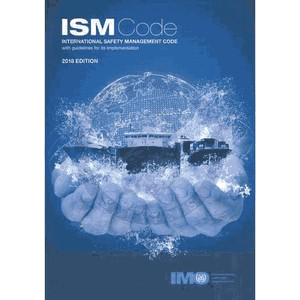
Международная Морская Организация предлагает представителям морского транспорта принять участие в онлайн-опросе в рамках комплексного исследования по оценке эффективности Международного Кодекса Управления Безопасностью (ISM Code). Кодекс ISM - это международный стандарт по безопасности управления судами, их эксплуатации, а также по предотвращению загрязнения. Концепция Кодекса требует от судоходных компаний тщательного рассмотрения своей структуры управления, а также определения ответственности и полномочий тех, кто участвует в эксплуатации судов, с точки зрения безопасности и защиты окружающей среды. Кодекс ISM стал обязательным в 1998 году. ИМО заявило, что желающие принять участие могут сделать это до 30 сентября. Результаты исследования будут представлены Комитету по Безопасности на Море, когда он соберется на свою 108-ю сессию, которая будет проведена 15-24 мая 2024 года. Подобное решение Международной Морской Организации абсолютно правильное, поскольку внедрение данного Кодекса в некоторых организациях привело не к повышению безопасности мореплавания, а к разработке многочисленных документированных процедур, соблюдение которых требовало много времени и отвлекало от выполнения практических мер по обеспечению безопасности со стороны экипажа. Кроме того, Кодекс явился дополнительным инструментом, исполнение которого контролируется классификационными обществами через сертификацию системы МКУБ. Некоторые положения Кодекса основаны на стандартах ИСО 9000, которые не имеют прямого отношения к оценке безопасности. Оценка представителями морской индустрии положений Кодекса, а также практики его применения будет способствовать его дальнейшему разумному применению. Классификационные общества и инспекционные органы оказывают услуги морскому сообществу за приличное вознаграждение и отсюда могут появляться дополнительные необоснованные требования с их стороны к объему документации и функционированию системы управления безопасностью. В Правилах, касающихся исключительно вопросов безопасности, прописаны требования к системе управления и делаются ссылки на стандарты, которые не имеют прямого отношения к оценке безопасности. Можно надеяться, что после фундаментального опроса моряков, которые непосредственно применяют на практике ISM Code, будут выработаны дополнительные механизмы улучшения Кодекса и его интерпретации. | |
Выездное занятие | 28.07.2023 |
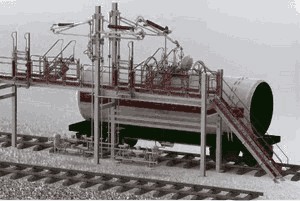
В период с 17 по 20 июля 2023 на базе компании ООО «ЛУКОЙЛ – Нижегороднефтеоргсинтез» проведены курсы по повышению квалификации сотрудников ООО «ЛУКОЙЛ – Нижегороднефтеоргсинтез» по теме: «Перевозка опасных грузов железнодорожным транспортом». Программа курсов была разработана с учетом внутренних технических регламентов компании и законодательства РФ. Отличная организация курсов позволила преподавателям МЦПП полностью выполнить программу и максимально донести необходимую информацию до слушателей. Деятельность МЦПП получила высокую оценку. | |
Литиевые батареи могут быть источником пожара и причиной гибели судна | 27.07.2023/th> |
|
По сообщению радиовещательного фонда NOS, (Нидерланды) на грузовом судне Fremantle Highway в Северном море недалеко от города Амеланд возник пожар. Судно перевозило из Германии в Египет около 3 тысяч автомобилей. Один человек погиб, несколько пострадали, экипаж эвакуирован, судно находится в дрейфе, работают спасатели. По предварительной информации, пожар начался на одном из 25 электромобилей, находившихся на борту. Нет данных о том, какие именно источники питания (аккумуляторы) использовались на этом электромобиле, но ясно, что они относятся к литиевым батареям. Литиевые батареи, в т.ч. установленные в транспортном оборудовании, являются опасными грузами, и в перечне опасных грузов Международного морского кодекса по опасным грузам (IMDG Code) числится 7 видов таких источников электроэнергии:
Обращаться с литиевыми батареями, в т.ч. с литий-ионными и литий-металлическими, установленными в определенном оборудовании, необходимо с должной мерой предосторожности. Подкомитет экспертов ЭКОСОС ООН по перевозке опасных грузов уделяет самое серьёзное внимание разработке и совершенствованию правил перевозки литиевых батарей, методам испытаний и безопасности эксплуатации. На 62-й сессии Подкомитета экспертов ЭКОСОС ООН по перевозке опасных грузов, состоявшейся в период с 3 по 7 июля 2023 года, Подкомитет одобрил работу неформальной рабочей группы по классификации литиевых батарей. | |
Безопасной серы не бывает | 26.07.2023 |

По сообщению агентства «рзн.инфо. Рязань», на вокзале в Сасово (Рязанская область) произошло возгорание серы в железнодорожных вагонах. По комментариям МЧС, пожар начался 26 июля в 7:25, в 8:20 возгорание было локализовано на площади 80 кв. метров, в 8.57 – ликвидировано. Из ближайших домов было эвакуировано 119 человек, пострадавших нет. Эксперты НП «АСПОГ» отмечают, что сера – это особый вид груза, который может классифицироваться как опасный, так и неопасный. Дело в том, что, в соответствии с Типовыми правилами ООН по перевозке опасных грузов (далее – Типовые правила), сера имеет номер ООН 1350, подкласс опасности 4.1 (легковоспламеняющиеся твердые вещества, самореактивные вещества, твердые десенсибилизированные взрывчатые вещества и полимеризующиеся вещества). У всех, кто имеет дело с серой не только на производстве и на транспорте, но и в быту (например, применяет серные шашки в борьбе с сельскохозяйственными вредителями), нет сомнений в опасных свойствах данного вещества. Кстати, помимо того, что сера горит, выделяя токсичные газы, интенсивно реагирует с сильными окислителями, она при перевозке и обработке образует пыль, которая в воздухе взрывоопасна. Тем не менее, в главе 3.3 тех же Типовых правил приведено специальное положение 242, которое гласит: Сера не подпадает под действие настоящих правил, если она была доведена до определенной формы (например, перевозится в виде комков, гранул, таблеток, шариков или хлопьев). Это же положение содержится в правилах перевозки опасных грузов на всех видах транспорта, для которых Типовые правила являются базовыми. Такая же трактовка (сера бывает «опасной» и «неопасной») содержится и в Международном кодексе морской перевозки навалочных грузов (IMSBC Code). Эксперты НП «АСПОГ» считают, что сера во всех случаях и на всех этапах ее жизненного цикла является опасным веществом. | |
Подготовка экспертов ВОПОГ | 25.07.2023 |
|
7-10 августа в Международном Центре подготовки персонала будут проводиться курсы ADN Basic по перевозке опасных грузов по внутренним водным путям в соответствии с требованиями Европейского соглашения о международной перевозке опасных грузов по внутренним водным путям (ВОПОГ). Обучение проводят эксперты-преподаватели, имеющие практический опыт работы на морских и речных судах в качестве капитанов и старших механиков.После прохождения обучения слушатели будут обладать знаниями основных положений ВОПОГ, классов опасных грузов, их основных характеристик, общих видов опасности, представляемых веществами различных классов, правил сопровождения опасных грузов, состава и основных технических характеристик оборудования, используемого при проведении погрузочно-разгрузочных работ с опасными грузам, форм и содержания транспортной документации на опасные грузы, методов и процедур предотвращения аварийных ситуаций при работах с опасными грузами, правил применения противопожарного оборудования и использования индивидуального защитного оборудования, оказания первой помощи пострадавшим в результате инцидентов с опасными грузами. По окончании курса слушателям будут выданы документы о повышении квалификации государственного образца и удостоверения эксперта ВОПОГ международного образца. | |
Совместное Совещание экспертов по Правилам, прилагаемым к Европейскому соглашению о международной перевозке опасных грузов по внутренним водным путям (ВОПОГ) | 25.07.2023 |
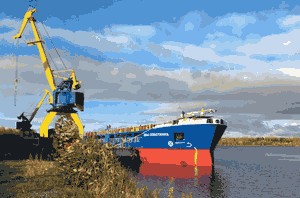
21-25 августа 2023 года в Женеве (Швейцария), во Дворце Наций, состоится 42-я сессия Рабочей группы по перевозке опасных грузов Комитета по внутреннему транспорту ЭКОСОС,Совместное Совещание экспертов по Правилам, прилагаемым к ВОПОГ. В предварительной повестке дня планируется рассмотрение следующих вопросов:
| |
Курсы ВОПОГ (ADN Basic) в МЦПП | 21.07.2023 |
|
В Международном центре подготовки персонала с 7 по 10 августа будут проводиться курсы по ВОПОГ (ADN Basic). Заявки можно направлять на istc@idgca.org | |
Типовые Правила ООН - результат коллективного разума экспертов разных стран | 21.07.2023 |
|
3-7 июля 2023 года в Женеве (Швейцария) состоялась 62-я Сессия Подкомитета экспертов по перевозке опасных грузов. В ходе сессии обсуждались следующие вопросы: испытания взрывчатых веществ, пересмотр требований к упаковке и перевозке взрывчатых веществ, требования к испытаниям и транспортировке литий- и натрий-ионных аккумуляторных батарей, транспортировка газов, классификация сосудов под давлением, рассмотрение предложений по внесению правок в Типовые Правила по перевозке опасных грузов в отношении маркировки, упаковки, использования переносных цистерн, обучения по безопасности обращения с опасными грузами, вопросы, связанные с Согласованной на глобальном уровне Системе классификации и маркировки химических веществ: испытания окисляющих веществ. Наряду с другими предложениями и документами были рассмотрены результаты работы неформальной рабочей группы по сервисному оборудованию для переносных цистерн, которая была создана по предложению Российской Федерации и поддержана экспертами Подкомитета. Неформальная рабочая группа работала между сессиями путем переписки и общения на платформе Zoom и продолжила работу в период сессии. Руководитель неформальной рабочей группы Иван Сергеичев, представитель РФ, на пленарном заседании представил результаты работы в виде проекта нового раздела 6.9.3 для внесения в Типовые правила ООН. В составе неформальной рабочей группы активно участвовали эксперты НП «АСПОГ», России, Германии, Франции и Польши. В частности, Генеральный директор НП «АСПОГ» Огнев М.И. внес предложение, касающееся требований к системе обеспечения качества при проектировании, испытании и изготовлении сервисного оборудования из композитных материалов. Во многих частях Типовых Правил ООН требования к системе качества не были четко сформулированы и понимание этих требований представляло сложность для предприятий-изготовителей изделий, подпадающих под действие Типовых Правил ООН, МКМПОГ, ДОПОГ, ВОПОГ, МПОГ, касающихся перевозки опасных грузов. Различное толкование понятия «система качества» часто приводило к необоснованным требованиям со стороны инспекционных органов, которые выполняли функции подтверждения соответствия продукции и производства требованиям правил. Экспертами НП «АСПОГ» была предложена короткая формулировка, которая раскрывала понятие системы качества и устанавливала требования к ней. НП «АСПОГ» также подготовило к сессии официальный документ ST/SG/AC.10/C.3/2023/29 и неофициальный документ UN/SCETDG/62/INF.38, которые касались требований Типовых правил к контейнерам средней грузоподъемности для массовых грузов (КСМ) предназначенных для перевозки опасных грузов, включая грузы 8 класса опасности. Контейнеры средней грузоподъемности для массовых грузов (КСМ) или в английской аббревиатуре IBC, так называемые кубы, достаточно популярны при перевозке опасных грузов в мультимодальном сообщении в грузовых транспортных единицах. IBC - композитные (составные) контейнеры, состоящие из емкости, изготовленной из жесткого пластика и наружной металлической решетки, окружающей емкость. По мнению экспертов НП «АСПОГ» отсутствие достаточных требований в Типовых Правилах ООН к конструкции и испытанию сервисного оборудования, в том числе нижнего слива (и, как следствие, возможность установки на КСМ клапанов несоответствующего качества), может привести к авариям. 62-я сессия Подкомитета экспертов по перевозке опасных грузов это первое заседание после пандемии коронавируса. Кроме официального общения у экспертов была возможность общаться в неформальной обстановке за ужином в одном из женевских ресторанов. Сессия прошла успешно. Следующая 63-я сессия Подкомитета экспертов по перевозке опасных грузов состоится 27 ноября – 6 декабря 2023 года. | |
Новая 23-я редакция Типовых Правил ООН по Перевозке Опасных Грузов | 19.07.2023 |
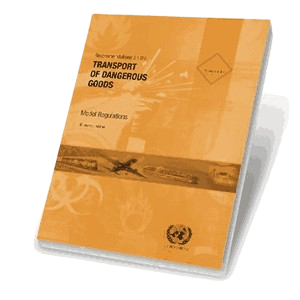
В библиотеку Международной Ассоциации по опасным грузами и контейнерам поступило новое издание Типовых Правил ООН по Перевозке Опасных Грузов, направленное Секретариатом ООН в адрес НП «АСПОГ» на английском языке. При подготовке различных экспертных заключений, а также обучении специалистов НП «АСПОГ» и МЦПП всегда пользуются исключительно актуализированными документами. При этом часто приходится обращаться к изданию на английском языке, поскольку текст на русском языке иногда отличается от текста основного языка, на котором работают эксперты различных стран. НП «АСПОГ» поблагодарила Секретариат ООН за направление Типовых Правил ООН в адрес Ассоциации. | |
Очередные жертвы замкнутых пространств | 30.06.2023 |
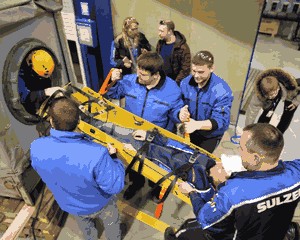 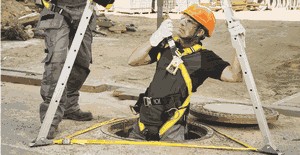
По сообщению агентства «Казанский репортер», на территории нефтегазодобывающего управления Елховнефть ПАО «Татнефть» в Заинском районе произошел взрыв находящегося на реконструкции нефтяного резервуара. По мнению экспертов НП «АСПОГ», взрыв, в результате которого погибли 2 человека, произошел вследствие грубейших нарушений правил работы в замкнутых пространствах. Погибшие сотрудники предприятия занимались очисткой нефтяного резервуара. Возбуждено уголовное дело по статье «Нарушение правил безопасности на взрывоопасных объектах». К сожалению, по статистике, ежегодно в мире в замкнутых пространствах гибнут десятки человек. Зачастую люди, работающие в замкнутых пространствах, к которым относятся стационарные и транспортные резервуары, трюмные помещения, закрытые склады, закрытые грузовые транспортные единицы, такие как грузовые контейнеры и др., как и руководители, направляющие своих подчиненных на эти работы, не обладают ни знаниями, ни практическими навыками такой работы. Не все, видимо, знают, например, что обычная древесина, находящаяся в закрытом помещении, может представлять смертельную опасность для человека, поскольку вследствие происходящих в этом материале биохимических процессов концентрация кислорода в атмосфере рабочей зоны снижается, достигая опасного порога в 16% и ниже. Впрочем, опасность возникает и при повышенной концентрации кислорода, что создает условия для возникновения и быстрого распространения пожара. Международная морская организация и ООН уделяют проблеме обеспечения безопасности в замкнутых пространствах огромное внимание, разработав ряд норм и стандартов, к числу которых относится, например, Резолюция ИМО А.1050(27) «Пересмотренные рекомендации по входу в закрытые помещения на судах». В соответствии с положениями этого документа, компания должна разработать процедуры, которые предусматривают использование соответствующего оборудования по проверке атмосферы в таких помещениях и проведение регулярных учений персонала. Должна проводиться подготовка ответственных лиц по обнаружению, оценке, измерению, контролю и устранению опасности в закрытых помещениях. Компания должна обеспечивать проведение оценки риска для определения всех закрытых помещений на борту судна. Оценка риска должна периодически пересматриваться, чтобы всегда быть достоверной. На всех курсах, проводимых в Международном центре подготовки персонала, обеспечению безопасности при работе в замкнутых пространствах, в т.ч. контролю состава атмосферы перед началом работ и в ходе их осуществления, уделяется особое внимание. Учебные занятия проводят эксперты, имеющие практический опыт деятельности в области обеспечения безопасности работ в замкнутых пространствах. | |
ЛЕТНИЕ КУРСЫ В МЕЖДУНАРОДНОМ ЦЕНТРЕ ПОДГОТОВКИ ПЕРСОНАЛА | 26.06.2023 |
|
В период с 10 по 14 июля в МЦПП планируется очередная подготовка специалистов по безопасности перевозки опасных грузов. Обучение и аттестация будет проходить по следующим специальностям (категориям):
Желающие пройти обучение очно или дистанционно могут направить заявку. | |
ИМО утвердило временное руководство по СУГ и пользовательский интерфейс для бункеровки СПГ | 23.06.2023 |
|
ИМО сделала еще один шаг вперед в создании нормативно-правовой базы для альтернативных видов топлива. 107-я сессия Комитета по безопасности на море (MSC 107, 31 мая – 9 июня) утвердила циркуляр MSC.1/Circ.1666, содержащий Временные рекомендации по безопасности судов, использующих СУГ в качестве топлива. Это Временное руководство обеспечит международный стандарт, аналогичный Кодексу для судов, работающих на СУГ, и послужит основой для проектирования, строительства и эксплуатации судов, использующих СУГ в качестве топлива. Кодекс для судов, работающих на СУГ, представляет собой всеобъемлющую нормативно-правовую базу для обеспечения безопасного использования СУГ в качестве топлива. ИМО ранее разработала и утвердила временные руководящие принципы, основанные на структуре Кодекса для судов, работающих на СУГ, для метиловых/этиловых спиртов (включающие метанол), вслед за которыми было разработано временное руководство для энергетических установок на топливных элементах. Эти руководящие принципы были разработаны Подкомитетом ИМО по перевозке грузов и контейнеров (CCC), который в настоящее время работает над временным руководством для водорода и аммиака. MSC 107 также утвердил MSC.1/Circ1668, содержащий унифицированную интерпретацию бункеровочных манифольдов, установленных на бункеровщиках СПГ в Кодексе, для судов, работающих на СУГ. Интерпретация разъясняет вопросы, связанные с риском утечки и связанной с этим защитой безопасности для судов-бункеровщиков СПГ, некоторые из которых в дополнение к традиционным грузовым манифольдам оборудованы устройствами для перегрузки груза. Недавно НП «АСПОГ» провела конференцию, посвященную альтернативным видам топлива. Доклады участников конференции будут опубликованы в журнале «Опасные грузы и контейнеры» в ближайшее время. | |
Столкновение двух танкеров на реке Лена и утечка топлива в акваторию | 19.06.2023 |
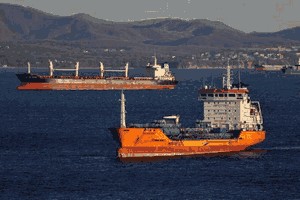
Согласно сообщению ТАСС 12 июня рядом с поселком Алексеевка Киренского района Иркутской области столкнулись танкер ТР-900 «Ерофей Хабаров» и танкер ТР-901, перевозящие 832 тонны бензина. На одном из судов была повреждена емкость с 138 тоннами топлива. Произошла утечка в акваторию реки Лена. По предположениям в акваторию могло попасть от 60 до 90 т бензина. В Киренском районе введен режим чрезвычайной ситуации, в Якутии режим повышенной готовности. Губернатор Иркутской области Игорь Кобзев сообщил, что судном управлял помощник капитана, так как капитан был в нетрезвом состоянии. Судно скрылось с места события и покинуло Иркутскую область. Собственник танкера сообщил о происшествии только через час, что повлияло на развитие событий. Предполагают, что судно могло быть в плохом техническом состоянии. Вопросы перевозки опасных грузов внутренним водным транспортом регулируются Правилами ВОПОГ, которые, к сожалению, не применяются в Российской Федерации в обязательном порядке для судов внутреннего плавания. Международный Центр подготовки персонала на протяжении нескольких лет предлагает свои услуги по подготовке экспертов ВОПОГ, однако, они не востребованы в РФ, а основными слушателями курсов по программе ВОПОГ являются европейские моряки. Примечательно, что документы, выданные МЦПП и НП «АСПОГ», признаются европейскими судоходными компаниями. | |
Сессия Подкомитета экспертов ЭКОСОС по перевозке опасных грузов | 19.06.2023 |
|
3-7 июля 2023 года во Дворце Наций (Женева, Швейцария) состоится 62-я Сессия Подкомитета экспертов по перевозке опасных грузов. В повестке дня сессии следующие вопросы:
Государствами-членами Подкомитета экспертов по перевозке опасных грузов и неправительственными организациями, имеющими консультативный статус на рассмотрение комитета представлены 30 официальных документов. Среди них предложение РФ, касающееся сервисного оборудования для переносных цистерн и предложение НП «АСПОГ» по внесению изменений в Главу 4.1 Типовых Правил, касающихся требований КСМ для перевозки опасных грузов 8-го класса опасности. Официальные документы предоставляются в срок за 2 месяца до сессии, а неформальные могут предлагаться на рассмотрение в любое время, в том числе перед началом или в ходе сессии. Но приоритет имеют официальные документы. Эксперты НП «АСПОГ» планируют принять непосредственное участие в работе сессии в Женеве. | |
АРКТИКА: ПРОШЛОЕ, НАСТОЯЩЕЕ, БУДУЩЕЕ | 09.06.2023 |
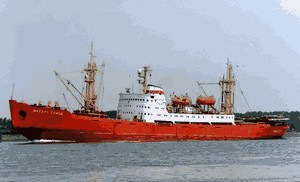
Государственное Общественное Телевидение России готовит 15-17 документальных фильмов, посвященных прошлому, настоящему и будущему Арктики и Северному морскому пути, которые в настоящее время получили мощный толчок к развитию от государства. 07 июня 2023 года в офисе Международной Ассоциации по перевозке опасных грузов и контейнеров (далее НП «АСПОГ»), для одного из документальных фильмов, редакторами ОТР было взято интервью у капитана дальнего плавания ОАО «Мурманское морское пароходство» Владимира Дмитриевского, который проработал на этом предприятии 42 года, начиная с 1977 г., из них 30 лет в плавсоставе (17 лет капитаном сухогрузов и танкеров) и последние годы на различных руководящих должностях в ОАО «ММП» и большую часть своей жизни связал с Арктикой. Ему были заданы, и он осветил вопросы, которые касались Арктики в прошлом, каким она видится ему сейчас, и о будущем Северного морского пути, как непосредственного свидетеля развития Арктики в 70-80 годы, затем заброшенность ее в 1990-2000 гг. и бурный толчок в развитии в последние годы. Им было отмечено, что главным шагом в развитии СМП сегодня , явилось создании Дирекции Северного морского пути в прошлом году , которую возглавил Заместитель Генерального директора «Росатома» (бывший Первый Заместитель Министра транспорта РФ) Вячеслав Рукша, знающий Арктику очень глубоко и создав коллектив грамотных специалистов, несомненно, под его руководством, Россия еще больше прирастет Арктикой. Примечательно, что Вячеслав Рукша был первым Президентом НП «АСПОГ» с 2001 по 2004 год. Вопросы, задаваемые Руководителем службы эфира Дирекции информационного вещания ОРТ Светланой Губановой, были проникнуты глубоким знанием арктических проблем и задач. В настоящее время Владимир Дмитриевский работает преподавателем и экспертом в НП «АСПОГ». Светлана Губанова также взяла интервью у Генерального директора НП «АСПОГ» Михаила Огнева, который также посвятил много лет своей жизни Арктике, работая старшим механиком на судах Северного морского пароходства и хорошо знаком с условиями Крайнего Севера и Антарктиды. С 1986 по 1987 год Михаил Огнев был участником 32-й Советской Антарктической экспедиции и обеспечивал вместе с другими членами экипажа безаварийную работу судна «Павел Корчагин». Условия работы в Арктике и Антарктике требуют от капитанов и старших механиков особых навыков и знаний. Любая ошибка может стоить жизни экипажа и нанести значительный ущерб природе. Именно на это обратил внимание в своем интервью Михаил Огнев. Он сказал, что к Арктике и Антарктике надо относиться особенно бережно, поскольку Арктика это не только уникальная северная трасса, хранитель огромных запасов нефти, газа и других полезных ископаемых, но и уникальные лесные и ландшафтные ресурсы. В арктических реках и морях водятся уникальные виды рыб: осетр, нельма, муксун, стерлядь, сиг, а также богатейший животный мир. И поэтому несмотря на технический прогресс развития индустрии в Арктике эти арктические богатства как национальное достояние должны быть сохранены потомкам. Свой огромный профессиональный опыт капитан дальнего плавания Владимир Дмитриевский и старший механик Михаил Огнев передают слушателям курсов в Международном Центре подготовки персонала и своим сотрудникам. | |
Конференция организована на высоком профессиональном уровне | 02.06.2023 |
|
30 мая в г. Петергофе состоялась XVII Международная конференция «Мультимодальные перевозки опасных грузов. Топливо будущего. Путь к устойчивому развитию». Конференция прошла на высоком профессиональном уровне – такое мнение выразило большинство ее участников, среди которых были такие организации, как ГК «Ростех», АО «Уралкриомаш», ПАО «Гелиймаш», ООО «Арктическая перевалка» (ГК НОВАТЭК), ФГУП «Крыловский государственный научный центр», ООО «Русхимальянс», ООО «Газпромнефть Шиппинг», ООО «ЕвроХим Терминал Усть-Луга», АО «Новые технологии в перевозках», ООО «Н2 Инвест», ООО «Феникс», ЗАО «ТК «Химпэк», ОАО «Лукойл НН, Российский институт стандартизации и многие другие. Несмотря на тематику «Топливо будущего. Путь к устойчивому развитию» была выстроена устойчивая связь между производителями, научными организациями, регулирующими органами, перевозчиками автомобильного, морского, речного, железнодорожного и авиационного транспорта, позволяющая выработать общую концепцию безопасности и качества при осуществлении мультимодальных перевозок опасных грузов – именно ту концепцию, которая традиционно обсуждается на всех конференциях, организуемых НП «АСПОГ». В ходе дискуссии и обсуждения докладов поднимались проблемы, актуальные на сегодняшний день, и чаще всего связанные с недостаточностью нормативно- правового обеспечения перевозок опасных грузов, определением полномочий компетентных организаций и статуса выпускаемых ими правил. Большая дискуссия была посвящена вопросам гармонизации международных стандартов с национальными, а также производству современного оборудования для хранения и транспортировки новых экологически чистых сортов топлива (СПГ, водорода, аммиака, метанола). Окружающая обстановка, прекрасный отель, расположенный на берегу Ольгина пруда, приветственное слово Главы местной администрации муниципального образования город Петергоф и вечерняя неформальная дружеская встреча оставили у участников конференции приятное впечатление от всего, что происходило в этот день. Следующее мероприятие, которое планирует НП «АСПОГ», - III Съезд советников по безопасности перевозки опасных грузов, который пройдет в октябре текущего года. | |
Конференция в Петродворце предполагает интересные дискуссии | |
|
Конференция в Петродворце предполагает быть интересной и крайне полезной для всех ее участников, которые соберутся в отеле «Новый Петергоф», расположенном рядом с великолепным Ольгиным прудом. Впервые в рамках международной конференции «Мультимодальные перевозки опасных грузов» будут обсуждаться не только перевозка опасных грузов, но и проблемы и перспективы использования новых экологически чистых сортов топлива, таких как СПГ, водород, метанол, аммиак. Несмотря на то, что уже построены заводы по производству СПГ, водорода, аммиака и метанола, введены в строй терминалы СПГ, вопросы логистики, безопасности, производства нового оборудования по-прежнему остро стоят на повестке дня. Для участников конференции будут созданы условия, когда они смогут не только слушать доклады, но и общаться между собой, осуществлять обмен мнениями, закладывать предпосылки для подписания договоров и соглашений. Конференция также предполагает участие в онлайн режиме, и те, кто не сможет по каким-либо причинам присутствовать в зале, смогут обращаться к докладчикам и участникам конференции через виртуальную платформу. Свое участие в конференции подтвердил ряд ключевых компаний России, среди которых Государственная корпорация «Ростех», АО «МХК «ЕвроХим», ПАО «КРИОГЕНМАШ», АО «УРАЛКРИОМАШ», Порт «Бронка», ООО «ЛУКОЙЛ-Нижегороднефтеоргсинтез», ООО «Газпром СПГ Портовая», а также представители Ростехнадзора, Ространснадзора, Федерального агентства по техническому регулированию и метрологии и др. Для участия в конференции приглашены представители более 100 крупных организаций и предприятий России. Программа конференции предусматривает плотный рабочий график, а также отдых и экскурсию. Оператором конференции выступает Международный центр подготовки персонала. Заявки на участие в Конференции принимаются по электронной почте - istc@idgca.org, info@idgca.org. Контактные телефоны: +7(911) 928-95-75, +7(905) 222-51-38, +7(905) 222-51-28, +7(812) 740-20-19. | |
С июля 2023 года Международная Ассоциация по опасным грузам и контейнерам возобновляет выпуск журнала | 19.05.2023 |
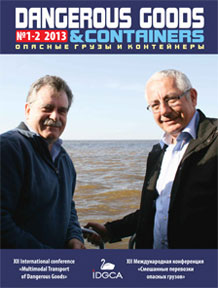
На протяжении многих лет с 2001 года Международная Ассоциация по опасным грузам и контейнерам издавала двуязычный журнал. Журнал приобрел международную известность, о нём хорошо знали в Международной Морской организации, в Подкомитете экспертов ООН, международных структурах, а также имел много подписчиков среди российских компаний и организаций. В связи с финансовыми трудностями в период пандемии выпуск журнала был приостановлен, и в июле принято решение его возобновить. В первое полугодие планируется выпустить два номера и в 2024 году планируется выпуск шести номеров каждые два месяца.Журнал сохранит свою эксклюзивность, двуязычность и свой дизайн. С 1 июня 2023 года будет открыта подписка на этот журнал. В июльском номере планируется осветить предстоящую конференцию и опубликовать наиболее интересные доклады. В журнале регулярно будет освещаться работа Подкомитета экспертов ООН, отраслевых комитетов, Международной морской организации (IMO), Международной организации по стандартизации (ISO) и других организаций. Планируется вести отдельные рубрики, касающиеся предотвращения аварийных ситуаций, рубрики, в которых будут публиковаться мнения учёных, экспертов, представителей надзорных органов и бизнеса. Приглашаем всех наших партнёров, учеников, которые проходили обучение, поддержать выпуск журнала и оформить подписку на него. | |
Таможенные органы повышают квалификацию по контролю за оборотом топлива | 18.05.2023 |
|
В период с 22 по 26 мая в помещении МЦПП состоится обучение сотрудников Балтийской таможни по программе повышения квалификации «Определение количества и качества нефтепродуктов, перевозимых на борту транспортного средства или содержащихся в береговой емкости». Имеющиеся случаи незадекларированного топлива и вывозом его, с целью перепродажи на иностранные суда, требуют от таможенных органов дополнительных знаний и навыков при осуществлении контрольных функций за оборотом судового топлива. Учитывая перспективы использования новых, более экологичных сортов топлива, таможенные органы должны быть готовы, что в ближайшее время они столкнуться с контролем и оформлением не только обычных сортов топлива, но и таких видов топлива как СПГ, водород, аммиак, метан. Представитель Балтийской таможни приглашен выступить с докладом на XVII-й Международной Конференции «Мультимодальные перевозки опасных грузов. Топливо будущего. Путь к устойчивому развитию», которая будет проходить 30 мая 2023 года в Петергофе в отеле «Новый Петергоф». Конференция посвящена развитию технологий производства и транспортировки экологически чистых видов топлива таких, как водород, аммиак, метан, сжиженный охлажденный газ и других. | |
Перекись водорода может стать причиной пожаров и взрывов | 18.05.2023 |

На первый взгляд, перекись водорода (в соответствии с Типовыми правилами ООН по перевозке опасных грузов – ВОДОРОДА ПЕРОКСИД) – это безобидный продукт, к которому мы привыкли при использовании в быту и в медицинских целях. Однако опасность этого вещества определяется его концентрацией в водном растворе. Безобидный продукт при определенных концентрациях может вызывать пожары и взрывы. При этом в Типовых правилах ООН по перевозке опасных грузов этому веществу, в зависимости от его концентрации, присвоены 2 номера ООН: UN 2014 (ВОДОРОДА ПЕРОКСИДА ВОДНЫЙ РАСТВОР, содержащий не менее 20%, но не более 60% водорода пероксида (стабилизированный, если необходимо) и UN 2015 (ВОДОРОДА ПЕРОКСИД СТАБИЛИЗИРОВАННЫЙ или ВОДОРОДА ПЕРОКСИДА ВОДНЫЙ РАСТВОР СТАБИЛИЗИРОВАННЫЙ, содержащий более 60% водорода пероксида). В обоих случаях у этого продукта класс основной опасности 5.1 (окисляющие вещества), класс дополнительной опасности 8 (коррозионные вещества). Для UN 2014 определена группа упаковки II (вещества со средней степенью опасности), для UN 2015 - группа упаковки I (вещества с высокой степенью опасности). За примерами агрессивного поведения перекиси водорода, как говорится, далеко ходить не приходится. По сообщениям ряда СМИ, 1 мая 2023 года пять человек погибли и один получил травмы в результате взрыва и возникшего пожара на объекте по производству раствора перекиси водорода химической корпорации Sinochem в провинции Шаньдун на востоке Китая. Ранее, 20 июля 2019 года, в Луганске при взрыве полуторалитровой бутыли, в которой находился 60% раствор перекиси водорода, пострадало 7 человек. К сожалению, международные и национальные правила перевозки перекиси водорода не раскрывают всей опасности этого груза, и, по мнению экспертов НП «АСПОГ», не отражают всей его опасной специфики. В настоящее время в НП «АСПОГ» разрабатывается предложение в Подкомитет экспертов ЭКОСОС ООН по перевозке опасных грузов, направленное на совершенствование требований к транспортировке водорода пероксида. | |
Заседание Технического комитета по стандартизации «Кислородное и криогенное оборудование» (ТК 114) Росстандарта | 03.05.2023 |
|
27 апреля 2023 года эксперты НП «АСПОГ» приняли участие в заседании ТК 114. В соответствии с повесткой дня были заслушаны отчеты о деятельности ТК 114 и рассмотрены предложения по изменению его структуры и состава. С предложением об изменении структуры Технического комитета выступил руководитель рабочей группы «Металлокомпозитные сосуды и баллоны» ТК 114 Олег Евгеньевич Богачек. Его предложение касалось создания в ТК 114 Подкомитета ПК 01 «Металлокомпозитные криогенные сосуды и баллоны» на базе существующей рабочей группы. Цель создания ПК 01 – выработка стратегии в области стандартизации на ближайшие 5 лет, разработка процедур и правил в закрепленной области деятельности, а также организация и проведение работ в рамках национальной, межгосударственной (региональной) и международной стандартизации в предметной области в соответствии с нормами законодательства. Это предложение, как и предложения по изменению состава ТК 114 за счет включения в него 2-х новых членов и исключения из него 4-х организаций, которые были расформированы и/или прекратили свою деятельность, было единогласно принято. Таким образом, в ближайшее время в приказ о создании ТК 114 «Кислородное и криогенное оборудование» будут внесены соответствующие изменения. | |
Аммиак требует серьезного отношения к обеспечению безопасности перевозки | 03.05.2023 |
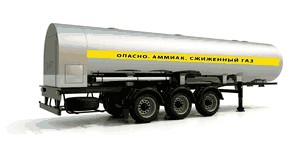
По сообщению, опубликованному на сайте 47 News, 02.05.2023 года на федеральной трассе А-180 «Нарва» в Кингисеппском районе из автоцистерны произошла утечка аммиака. Последствия утечки ликвидировали сотрудники 79-й пожарно-спасательной части. Хотя утечка, по сведениям источника данной информации, носила «капельный» характер, это событие является предпосылкой к более серьезному инциденту. Достаточно напомнить, что аммиак является токсичным и одновременно коррозионным веществом, о чем мы писали на нашем сайте. Эксперты НП «АСПОГ» не имеют информации в объеме, достаточном для проведения анализа причин происшествия. В соответствии с Правилами Соглашения о международной дорожной перевозке опасных грузов ДОПОГ, которые применяются в Российской Федерации в качестве национальных правил, перевозка аммиака безводного, если говорить об автоцистернах, возможна в герметически закрытой цистерне для сжиженных или растворенных газов с отверстиями для наполнения или опорожнения снизу с тремя затворами, с минимальным испытательным давлением 26 бар (для цистерн с теплоизоляцией) или 29 бар (для цистерн без теплоизоляции). При этом должно использоваться специализированное «Транспортное средство АТ», которое предназначено для перевозки опасных грузов во встроенных цистернах или съемных цистернах емкостью более 1м3 либо в контейнерах-цистернах или переносных цистернах или многоэлементных газовых контейнерах индивидуальной вместимостью более 3 м3. Кроме того, Правила ДОПОГ содержат требования, касающиеся процедур оценки соответствия, проверок и испытаний, и ряд других. Совершенно очевидно, при наличии в конструкции цистерны трех исправных независимых запорных устройств утечка вещества, пусть даже и «капельная» маловероятна. На предстоящей XVII Международной конференции «Мультимодальные перевозки опасных грузов», которая состоится 30 мая 2023 года в Петергофе, именно вопросам, связанным с обеспечениям безопасности перевозки опасных грузов, в частности, аммиака безводного, будет уделено основное внимание. Участники конференции получат ответы на те вопросы, которые у них возникают в ходе осуществления перевозок и хранения опасных веществ. | |
РАЗВИТИЕ НОВЫХ ПРОГРАММ ПОДГОТОВКИ СПЕЦИАЛИСТОВ ПО РАБОТЕ С ОПАСНЫМИ ГРУЗАМИ | 28.04.2023 |
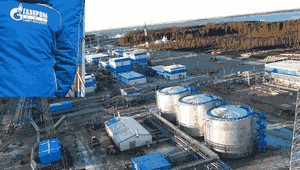
Опасные грузы - столь широкое понятие, что с ним практически сталкиваются все специалисты, которые работают на предприятиях, производящих продукцию, проектирующих оборудование, а также сотрудники транспортных компаний, осуществляющих перевозку грузов, портов, терминалов и других организаций. К категории опасных грузов относится и СПГ, производство которого в настоящее время приняло глобальный масштаб. Строятся новые терминалы, новые суда, создается новое оборудование. Программы подготовки специалистов, по которым обучаются студенты и по которым проводится повышение квалификации сотрудников организаций, не всегда отражают последние разработки, новые технологии, специфику нового оборудования, новые стандарты и условия работы при производстве, транспортировке и хранении СПГ. Международный центр подготовки персонала (МЦПП), понимая глобальную задачу подготовки специалистов, разрабатывает программы повышения квалификации с учетом самых последних требований международных конвенций, соглашений, стандартов, а также практического опыта работы на терминалах, судах и на производственных площадках. На прошлой неделе в МЦПП был проведен курс подготовки сотрудников ООО «Газпром СПГ Портовая» по двум программам: программа «Грузовой мастер терминалов» и программа «Оператор по грузовым работам на терминале». Успешно завершив обучение, эти специалисты получили не только удостоверения о повышении квалификации Международного центра подготовки персонала, но и сертификаты признания квалификации Международной Ассоциации по опасным грузам и контейнерам. Слушатели, прошедшие курсы и аттестацию, выразили свое полное удовлетворение обучением и благодарность Международному центру подготовки персонала. Подготовка по данным программам будет регулярно проводиться на базе МЦПП. | |
ГОТОВИМСЯ К XVII МЕЖДУНАРОДНОЙ КОНФЕРЕНЦИИ | 24.04.2023 |
|
30 мая 2023 года в Петергофе состоится XVII Международная Конференция, посвященная развитию новых технологий в области производства и перевозки экологических сортов топлива. Организаторы конференции дают полную информацию о свойствах новых сортов топлива, в том числе и опасных, с точки зрения хранения и перевозки. Водород Водород по праву считается одним из перспективных видов горючего, и уже в настоящее время транспортные средства с водородными двигателями не являются редкостью. Однако при разработке технических решений в сфере водородной энергетики следует учитывать большую специфику водорода. Водород существует в двух модификациях - в виде орто- и параводорода. В молекуле ортоводорода ядерные спины (собственные моменты импульса частицы) направлены одинаково (параллельны), а у параводорода - противоположно друг другу (антипараллельны). В реальных условиях жидкий водород претерпевает самопроизвольную орто-пара конверсию при хранении и транспортировке. Орто-пара конверсия без катализатора протекает достаточно медленно, а так как при этом выделяется тепло, близкое по величине теплоте испарения, то целесообразно еще на этапе получения жидкого водорода осуществлять каталитическую конверсию. Жидкий водород при атмосферном давлении имеет температуру кипения - 252,87°С и очень низкую плотность - 0,07 т/м3, в силу чего применение водорода в жидкой фазе затруднительно. Водород может как играть роль горючего в двигателях, так и использоваться для получения электроэнергии в топливных элементах (химических источниках электроэнергии), потребляемой электродвигателями транспортных средств. По классификации ООН водород является опасным грузом, подкласс опасности 2.1 (легковоспламеняющиеся газы). Водород может храниться в виде охлажденного сжиженного газа (номер ООН 1966), в сжатом состоянии (номер ООН 1049), а также в системах хранения на основе металлогидритов (номер ООН 3468). Жидкий водород может перевозиться в закрытых и открытых криогенных сосудах, а также в переносных цистернах. Требования к криогенным сосудам сформулированы в инструкции Р203 Типовых правил ООН по перевозке опасных грузов (далее – Типовые правила), к переносным цистернам – в инструкции Т75 со специальными положениями ТР5 (требования, относящиеся к степени наполнения), ТР23 (требования по согласованию специальных условий перевозки с компетентными органами) и ТР34 (требования к особенностям испытаний переносных цистерн, не предназначенных для железнодорожной перевозки). Сжатый водород перевозится в соответствии с требованиями инструкции Р200 Типовых правил, которая предписывает, что этот опасный груз может перевозиться в баллонах, цилиндрах, барабанах под давлением, связках баллонов, а также в многоэлементных газовых контейнерах. Сжатый водород перевозится в соответствии с требованиями инструкции Р200 Типовых правил, которая предписывает, что этот опасный груз может перевозиться в баллонах, цилиндрах, барабанах под давлением, связках баллонов, а также в многоэлементных газовых контейнерах. Водород в системах хранения на основе металлогидритов перевозится в соответствии с положениями инструкции Р205, а также с учетом специальных положений 321 и 356 Типовых правил.  Метан К числу наиболее перспективных энергоносителей на транспорте относят природный газ, главной составной частью которого (97-99%) является метан (химическая формула CH4). Он может использоваться как горючее, но, помимо этого, применяются технологии синтеза из него жидких топлив, близких по своим свойствам к традиционным моторным топливам. В качестве перспективных альтернативных топлив, получаемых из природного газа, рассматриваются метиловый спирт (метанол), этиловый спирт (этанол) и диметиловый эфир. По своим свойствам названные спиртовые топлива пригодны как для использования в двигателях с принудительным воспламенением, так и для применения в дизелях. По классификации ООН метан является опасным грузом, подкласс опасности, как и у водорода, 2.1 (легковоспламеняющиеся газы). Метан может храниться в виде охлажденного сжиженного газа (номер ООН 1972), а также в сжатом состоянии (номер ООН 1971). Жидкий метан может перевозиться в соответствии с требованиями тех же инструкций, что и жидкий водород (Р203 и Т75). Сжатый метан перевозится в соответствии с требованиями инструкции Р200 Типовых правил, как и сжатый водород. 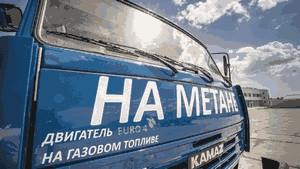 Метанол Метанол (химическая формула CH3OH) является также перспективным спиртовым топливом, промышленное получение которого освоено во многих странах. Но себестоимость производства метанола по сравнению с традиционными моторными топливами значительно выше. Спиртовые топлива обладают рядом существенных недостатков, среди которых следует отметить их токсичность (особенно это касается метанола), коррозионную активность и агрессивность по отношению к алюминиевым сплавам, резинам и другим конструкционным материалам. По классификации ООН метанол является опасным грузом класса опасности 3 (легковоспламеняющиеся жидкости), ему присвоен номер ООН 1230. Метанол, согласно требованиям Типовых правил, может перевозиться в упаковке (инструкция Р001) контейнерах средней грузоподъемности для массовых грузов (инструкция IBC02), а также переносных цистернах (инструкция Т7 со специальным положением ТР2).  Аммиак Кроме отмеченного выше, существуют технические предложения и разработки по использованию в двигателях транспортных средств безводного аммиака NH3, в частности, его смеси – 95% аммиака и 5% водорода. Такое топливо сгорает, образуя водяные пары и вредные окислы азота (NOХ ), которые обезвреживаются с помощью каталитического нейтрализатора. Данная идея весьма популярна, несмотря на то, что аммиак токсичен и активно вступает в реакции с другими веществами. Тем не менее, хранить и транспортировать его проще, чем водород, а его себестоимость существенно ниже. Аммиак безводный в соответствии с Типовыми правилами имеет основной подкласс опасности 2.3 (токсичные газы) и дополнительный класс опасности 8 (коррозионные вещества). Аммиак, согласно требованиям Типовых правил, может перевозиться в упаковке (инструкция Р200) и в переносных цистернах (инструкция Т50). 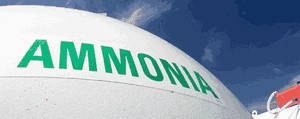 | |
XVII Международная конференция "Мультимодальные перевозки опасных грузов. Топливо будущего. Путь к устойчивому развитию. Fuel of the future 2023". | 17.04.2023 |
 
Международная Ассоциация по опасным грузам и контейнерам (НП «АСПОГ») 30 мая 2023 года проводит XVII-ю Международную конференцию «Мультимодальные перевозки опасных грузов». Конференция будет проходить под девизом «Топливо будущего. Путь к устойчивому развитию. Fuel of the future 2023». Стремление мирового сообщества к переходу на альтернативные виды топлива определяет концепция ООН, выраженная Меморандумом и инструментами устойчивого развития. Комитет экспертов ООН по перевозке опасных грузов уделяет особое внимание требованиям безопасности при перевозке таких топлив, как СПГ, водород, аммиак и метанол. Эти продукты считаются альтернативными видами топлива, будучи в то же время опасными грузами, к которым предъявляются строгие международные правила при перевозке и хранении. В связи с этим требуется разработка не только новых технологий производства продуктов, но и новых стандартов для транспортного оборудования. Программа Конференции включает:
Оператором конференции выступает Международный центр подготовки персонала. Конференция будет проходить в Петергофе в отеле «Новый Петергоф». | |
Керосин – опасное вещество | 17.04.2023 |
 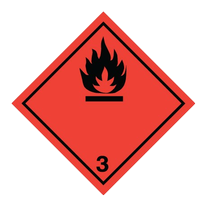
По сообщениям iz.ru, vesti.ru и ряда других СМИ, 11 апреля при посадке вертолета Ми-8 в Якутии три пассажира получили химические ожоги (информация поступила из пресс-службы Восточно-Сибирской транспортной прокуратуры). «Предварительно установлено, что 11 апреля 2023 года при посадке воздушного судна Ми-8, выполнявшего рейс по маршруту Среднеколымск - Черский, пассажиры почувствовали резкий запах керосина в салоне воздушного судна, ориентировочно после часа полета трое пассажиров почувствовали жжение», - рассказали в пресс-службе прокуратуры. Согласно информации авиакомпании, возможной причиной инцидента стало попадание авиационного топлива на сиденья в результате выброса топлива через дренаж. По данным транспортной прокуратуры, за медицинской помощью обратились три пассажира. Они получили химические ожоги 1–2-й степени в подколенных областях. Всего на борту вертолета находились 22 человека. Северо-Восточное линейное управлением МВД России проводят процессуальную проверку на транспорте. Для справки. По классификации ООН керосин является опасным грузом (UN 1223, класс опасности 3 (легковоспламеняющиеся жидкости)). Но, как убедительно подтверждено описанным инцидентом на борту вертолета, это вещество представляет для человека также и опасность за счет его химического и токсического воздействия как при контакте с кожными покровами, так и при пероральном и ингаляционном поступлении в организм. Керосин поражает центральную и периферическую нервные системы, дыхательную, сердечнососудистую и эндокринную системы, желудочно-кишечный тракт, печень, почки, кровь. Кроме того, это вещество представляет опасность для окружающей среды. Напомним, что показатель риска при обращении с опасным веществом зависит не только от степени и характера его поражающих свойств, но также и от вероятности воздействия. Вероятность же воздействия напрямую связана с уровнем профессионализма персонала, который регулярно должен повышать свою квалификацию. | |
Обучение по различным направлениям | 17.04.2023 |
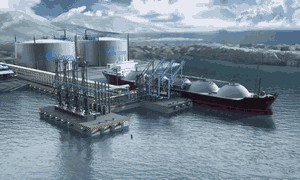
В Международном центре подготовки персонала (МЦПП) завершилось обучение очередной группы специалистов в области осуществления погрузочно-разгрузочной деятельности применительно к опасным грузам. Программа курса была скорректирована в соответствии с потребностями заказчиков, которые определяются спецификой деятельности каждого предприятия. Итоговая аттестация показала, что слушатели успешно освоили учебный материал. Более половины слушателей обучались в МЦПП ранее. Начиная с 17-го апреля в центре проводится обучение специалистов по программе «Основы безопасности эксплуатации терминалов СПГ». Эта программа также существенно усовершенствована с учетом опыта, накопленного не только в ходе обучения персонала, но также и при осуществлении технического сопровождения проектов, связанных с СПГ, проводимого экспертами Международной Ассоциации по опасным грузам и контейнерам. | |
Подготовка инспекторов | 16.03.2023 |
|
МЦПП считает одной из своих ответственных задач подготовку лиц инспекторского состава, осуществляющих надзорные и контрольные функции за перевозкой опасных грузов, погрузочно-разгрузочной деятельностью в морских и речных портах. К каждому из таких занятий проводится тщательная подготовка, обновляются программа и лекции преподавателей. Программа подготовки инспекторов отличается от программы подготовки советников по безопасности перевозке опасных грузов, принимая во внимание функциональные обязанности лиц, которые проходят подготовку. Аттестация инспекторов проводится аттестационной комиссией НП АСПОГ. Очередная подготовка инспекторов состоится в период с 20 по 24 марта. | |
Первая Международная конференция «Топливо будущего. Путь к устойчивому развитию» Fuel of the future 2023. 30 мая 2023 г., отель «Новый Петергоф» | 15.03.2023 |
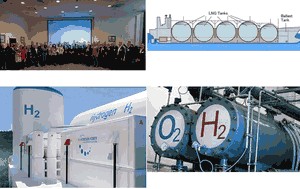
Устойчивое развитие и борьба с изменением климата взаимосвязаны. Обе цели жизненно важны для обеспечения благополучия человека. Построенная на основе новых технологий более устойчивая глобальная экономика будет способствовать сокращению выбросов парниковых газов, вызывающих изменение климата. Эта концепция провозглашена ООН, к этому стремятся многие страны, в том числе и Россия. Одним из решений поставленных глобальных задач является переход на новые виды топлива, и в первую очередь, на всех видах транспорта. К перспективным видам топлива можно отнести, прежде всего, СПГ, водород, аммиак и метанол. Проблема перехода на новые виды топлива состоит не только в совершенствовании технологии производства данных продуктов, но и в создании новых безопасных типов оборудования для их хранения и перевозки. Понятно, что все эти виды топлива относятся к опасным грузам. Для обеспечения безопасности их перевозки разрабатываются новые Международные Стандарты безопасности, которые применяются при строительстве судов, а также других видов транспорта и транспортного оборудования. Достаточно сильно в этом направлении продвинулся морской и речной транспорт, и не случайно, что Международная Морская Организация уже давно является лидером в этой области. Как во всем этом разобраться, какие направления по использованию новых видов топлива самые перспективные и как скоро это будет реализовано? Все это мы обсудим на предстоящей конференции, которая состоится 30 мая 2023 г. в Петергофе. На конференцию приглашаются представители предприятий по производству различных видов топлива, эксперты научных организаций, представители бизнеса и администраций. Оператором конференции выступает Международный центр подготовки персонала. Заявка на участие в конференции. | |
| 8 МАРТА | |
|
На Ваших женских плечах держится мир , красота и успех. Будьте всегда счастливы и здоровы | |
Грузы повышенной опасности: новые требования | 06.03.2023 |
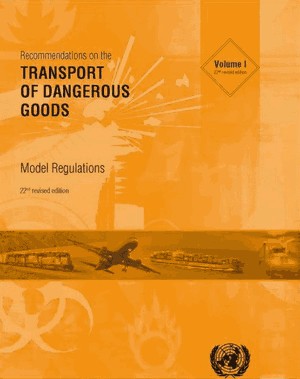
В соответствии с п 1.4.3.1 Типовых правил ООН по перевозке опасных грузов (ST/SG/AC.10/Rev.22, ООН, Нью Йорк и Женева, 2021 г.) грузами повышенной опасности являются грузы, которые могут быть использованы не по назначению, а в террористических целях и, следовательно, привести к серьезным последствиям, таким как многочисленные людские потери, массовые разрушения или, особенно в случае грузов класса 7, массовые социально-экономические потрясения. Аналогичные определения содержатся в правилах перевозки опасных грузов на различных видах транспорта (МК МПОГ, ДОПОГ, ВОПОГ, РИД, Приложение 2 к СМГС). 28 февраля 2023 года вступил в силу Федеральный закон от 28 февраля 2023 г. № 53-ФЗ «О внесении изменений в Федеральный закон «О транспортной безопасности» и признании утратившими силу отдельных положений законодательных актов Российской Федерации». Данный законодательный акт, не отменяя действия Федерального закона от 04 мая 2011 г. № 99-ФЗ «О лицензировании отдельных видов деятельности» и принятых в рамках его реализации положений о лицензировании на внутреннем водном и железнодорожном транспорте, уточняет порядок представления к перевозке грузов повышенной опасности. В соответствии с данным документом отменяются требования о получении специальных разрешений на перевозку грузов повышенной опасности железнодорожным и внутренним водным транспортом, а также на перевалку грузов повышенной опасности в речных портах. Вместе с тем документ предусматривает, что грузы повышенной опасности допускаются к перевозке транспортными средствами железнодорожного и внутреннего водного транспорта при наличии уведомления в форме электронного документа (сообщения), направляемого в Федеральную службу по надзору в сфере транспорта или её территориальный орган с использованием единой государственной информационной системы обеспечения транспортной безопасности, причем, это требование вступает в силу 29 февраля 2024 г. Перечень грузов повышенной опасности утвержден постановлением Правительства Российской Федерации от 10 марта 2022 года № 341(вступило в силу с 1 марта 2023 г. и действует до 1 марта 2029 г.). Федеральный закон от 28 февраля 2023 г. № 53-ФЗ уточняет также порядок реализации мер по защите от актов незаконного вмешательства, предусмотренных паспортами обеспечения транспортной безопасности транспортных средств автомобильного транспорта, используемых для перевозки опасных грузов, и планами обеспечения транспортной безопасности объектов транспортной инфраструктуры, используемых для погрузки, разгрузки и хранения грузов повышенной опасности, а также опасных грузов, на перевозку которых требуется специальное разрешение, выдаваемое в соответствии с порядком, предусмотренным пунктом 13 статьи 11 11 Федерального закона от 8 ноября 2007 года № 257-ФЗ «Об автомобильных дорогах и о дорожной деятельности в Российской Федерации и о внесении изменений в отдельные законодательные акты Российской Федерации». | |
Распространение фейков о подготовке советников по опасным грузам | 03.03.2023 |
|
На сайте Российской Ассоциации морских и речных бункеровщиков (далее - РАМРБ) в разделе «Обучение» размещена информация о совместной деятельности Международной Ассоциации по опасным грузам и контейнерам(далее НП АСПОГ) и РАМРБ в части подготовки советников по опасным грузам, что не соответствует действительности. Кроме этого, в разделе «Обучение» размещена информация, вводящая в заблуждение членов РАМРБ и других пользователей сайта. Несмотря на неоднократные обращения НП АСПОГ в адрес руководства РАМРБ убрать с их сайта недостоверную информацию, никаких действий не предпринимается. В связи с этим НП АСПОГ заявляет, что никаких совместных программ, соглашений, письменных и устных договоренностей между двумя организациями не существует. Подготовка cоветников по безопасности перевозки опасных грузов осуществляется исключительно на базе МЦПП, а аттестующей организацией является НП АСПОГ. МЦПП имеет сертифицированную DNV систему управления качеством, лицензию на образовательную деятельность и аккредитацию НП АСПОГ. Рекомендуем организациям, желающим пройти подготовку и аттестацию по программе «Советник по безопасности перевозки опасных грузов» обращаться непосредственно в НП АСПОГ или МЦПП.Образец заявки | |
Специфика перевозки опасного груза параформальдегида | 22.02.2023 |
|
01.03.23 состоится всероссийская межотраслевая практическая конференция Параформальдегид – 2023. Каждый опасный груз, перечисленный в Типовых правилах ООН, имеет свою особенность и специфику упаковки и транспортировки, а также требует внимательного изучения перед его отправкой и применением Организационный комитет конференции пригласил руководителей НП АСПОГ для участия и выступления с докладом. Вниманию участников будет представлен доклад о деятельности НП АСПОГ и участием Ассоциации в совершенствовании Правил по перевозке опасных грузов. В докладе будут продемонстрированы особые условия и опасные факторы при работе с параформальдегидом. | |
Подготовка инспекторов по опасным грузам | 22.02.2023 |
|
МЦПП является одним из немногих образовательных учреждений, который готовит инспекторов, относящиеся как к категории государственных служащих, так и ведомственных, на которых возложены функции контроля за перевозкой опасных грузов. На протяжении более чем 15 лет МЦПП неоднократно обучал и принимал экзамены служащих Ространснадзора, таможенных органов, инспекторов портового контроля и инспекторов крупных российских и иностранных организаций. Практика подготовки и переподготовки показала необходимость регулярного повышения квалификации инспекторского состава, и это понятно, поскольку международные правила и руководства переиздаются каждые 2 года и в них вносятся новые требования, а иногда и новые главы. МЦПП при методической помощи НП АСПОГ обновляет программы подготовки, что позволяет доводить до слушателей самые последние требования. В конце марта планируется очередная подготовка инспекторов по 40-часовой программе. Желающие пройти обучение могут направить заявку. | |
Анализ рисков при перевозке опасных грузов | 21.02.2023 |
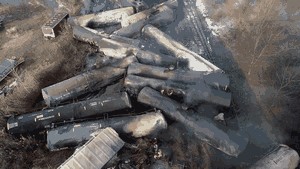 
Во многих сферах деятельности, связанной с эксплуатацией опасных производственных объектов, а также с перевозкой опасных грузов, все чаще применяется риск-ориентированный подход, хотя в международном и национальном законодательстве обязательные требования о его применении отсутствуют. Несмотря на ужесточение требований как международного, так и национального законодательства в сфере перевозки и обработки опасных грузов, продолжают происходить крупные аварии и катастрофы с опасными грузами, уносящие человеческие жизни и причиняющие колоссальный материальный и экологический ущерб. К таким инцидентам можно отнести взрыв аммиачной селитры в морском порту Бейрута 4 августа 2020 года, пожар в порту Искендерун на юге Турции 6 февраля 2023 года, пожар на контейнерном терминале в Бангладеш 5 июня 2022 года, а также недавний инцидент в американском штате Огайо, последствия которого до сих пор не оценены, несмотря на принимаемые беспрецедентные меры. Причины аварий и катастроф могут быть различными. Как правило, они происходят из-за ненадлежащего технического состояния транспортных средств и транспортного оборудования, нарушения правил размещения и крепления груза и др. И, как показала авария в Огайо, факт недостаточного внимания к состоянию магистральных и подъездных железнодорожных путей может привести к масштабным негативным последствиям. Остановимся подробнее на этом инциденте. Как стало известно из сообщений ряда средств массовой информации, вечером 3-го февраля в городке East Palestine произошло крушение грузового состава компании Norfolk Southern, в котором было более сотни вагонов. В нескольких цистернах находился винилхлорид – вещество, используемое при производстве поливинилхлорида – пластика, нашедшего широкое применение в различных областях техники и строительства. 5 февраля местные власти приняли решение о сливе химиката и его последующем уничтожении путем сжигания. Перед началом операции людей, проживающих на расстоянии менее 1 мили от места крушения, эвакуировали. В результате горения винилхлорида в воздух были выброшены фосген (напомним, что это боевое отравляющее вещество) и хлористый водород. Что же представляет собой винилхлорид? Его химическая формула CH2=CHCl. По классификации ООН ВИНИЛХЛОРИД СТАБИЛИЗИРОВАННЫЙ – это опасное вещество, имеет номер ООН 1086, класс опасности 2.1 – воспламеняющиеся газы. Пределы взрываемости в воздухе 3,6-33 об. %. Он хорошо растворяется в хлороформе, дихлорэтане, этаноле, эфире, ацетоне, углеводородах, нефти и незначительно в воде. Правила безопасности при перевозке винилхлорида, а также порядок действий при возникновении аварийных ситуаций с этим веществом приводятся в ряде нормативных документов. В частности, аварийная карточка № 205 (Аварийные карточки на опасные грузы, перевозимые по железным дорогам СНГ, Латвийской Республики, Литовской Республики, Эстонской Республики, утв. СЖТ СНГ, протокол от 30.05.2008 № 48, ред. от 22.11.2021) предписывает на случай инцидента отвести вагон в безопасное место, изолировать опасную зону в радиусе не менее 200 м, откорректировать указанное расстояние по результатам химразведки, эвакуировать посторонних, а также провести ряд других мероприятий. Для рассеивания (изоляции) газа использовать распыленную воду, место разлива покрыть воздушно-механической пеной, инертным материалом. Для химразведки и руководителя работ использовать портативные дыхательные средства (в течение 20 минут). Для аварийных бригад следует использовать изолирующие противогазы и спецодежду. При возгорании использовать огнезащитные костюмы в комплекте с самоспасателями. Мы видим, что действия ликвидаторов в Огайо носили несколько иной характер. Причины, приведшие к масштабному инциденту, как уже отмечалось, продолжают выясняться, но достаточно показательным является обращение Профсоюза железнодорожных рабочих США Railroad Workers United, которое было опубликовано сразу после появления сообщения о крушении: «Отличительными чертами современного железнодорожного транспорта являются резкое сокращение как обслуживающего, так и эксплуатационного персонала, плохое обслуживание клиентов, отложенное техническое обслуживание подвижного состава и инфраструктуры, продолжительный рабочий день и хроническая усталость, ограниченное обучение на рабочем месте и высокая текучесть кадров». Это, по словам профсоюза, могло явиться результатом своеобразной «оптимизации». Инцидент в Огайо служит примером того, что ненадлежащее состояние транспортной, в данном случае, железнодорожной, инфраструктуры и, самое главное, низкий профессиональный уровень персонала, работающего с опасными грузами, приводят к масштабным трагическим последствиям. Следует заметить, что в Таможенном Союзе действуют Технические регламенты «О безопасности железнодорожного подвижного состава» (ТР ТС 001/2011), «О безопасности высокоскоростного железнодорожного транспорта» (ТР ТС 002/2011) и «О безопасности инфраструктуры железнодорожного транспорта» (ТР ТС 003/2011), утвержденные решением Комиссии Таможенного союза от 15 июля 2011 г. № 710 (ред. от 30.10.2018). Соответствующие требования предъявляются к техническим характеристикам верхнего строения железнодорожного пути, по которому следуют поезда с опасными грузами, и, в частности, к железнодорожным рельсам. Подготовка и аттестация персонала железнодорожного транспорта регламентируется приказом Министерства транспорта РФ от 18 февраля 2021 г. № 41 «Об утверждении Порядка и сроков проведения аттестации работников железнодорожного транспорта, ответственных за погрузку, размещение, крепление грузов в вагонах, контейнерах и выгрузку грузов, а также порядка формирования аттестационных комиссий», зарегистрировано в Минюсте РФ 28 мая 2021 г., регистрационный № 63679. Международный центр подготовки персонала – дочерняя организация Международной Ассоциации по опасным грузам и контейнерам – обучает российских и зарубежных слушателей по различным программам подготовки в области перевозки опасных грузов. При обучении подробно разбираются случаи аварий и даются практические рекомендации по применению в сфере перевозки опасных грузов положений существующих международных стандартов по управлению рисками. Помимо этого в учреждении реализуется специализированный недельный курс по управлению рисками на опасных производственных объектах и при перевозке опасных грузов. | |
У НАС УЧАТСЯ ПРОФЕССИОНАЛЫ | 24.01.2023 |
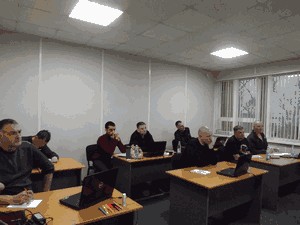 
Качественное повышение квалификации руководящего и инженерно-технического персонала предприятия, чья деятельность связана с эксплуатацией опасных производственных объектов и перевозкой опасных грузов, непростая задача для любого учебного заведения. Задача становится еще более ответственной, если за плечами учеников десятки лет работы на самых сложных объектах, и их знания находятся на высоком профессиональном уровне. Вот почему к любым курсам наш центр тщательно готовится и старается дать слушателям то новое, что повышает их уровень профессиональных знаний. Ослабление пандемийных требований позволило учебному центру проводить занятия непосредственно в помещениях центра, что, конечно, дало возможность непосредственного общения преподавателей и слушателей, хотя, справедливо надо отметить, что дистанционное обучение с применением современных технологий дает также широкую возможность слушателям, находящимся за тысячи километров от Санкт-Петербурга, слушать лекции, участвовать в обсуждениях программ и сдавать экзамены. С 16 по 20 января в г. Санкт-Петербурге прошли первые в новом 2023 году занятия. Две крупные компании, ООО «Сахалинская Энергия» и ООО «ЕвроХим Терминал Усть-Луга», направили своих специалистов в Международный центр подготовки персонала (МЦПП) для повышения компетенций в сфере работы с опасными грузами и получения звания советников по опасным грузам, которое присваивается слушателям, успешно сдавшим экзамены и прошедшим аттестацию в Международной Ассоциации по опасным грузам и контейнерам, при этом специалисты ООО «ЕвроХим Терминал Усть-Луга» проходили подготовку в онлайн-режиме, а ООО «Сахалинская Энергия» - непосредственно в учебном центре. Благодаря общению с представителями таких компаний преподаватели МЦПП получают новую для себя информацию, которая в дальнейшем будет использоваться при организации следующих курсов. Очередная подготовка Советников по безопасности перевозки опасных грузов запланирована с 13 по 17 февраля 2023 года. | |
Пересмотренные отраслевые стандарты ИАТА 2023 г | 20.01.2023 |
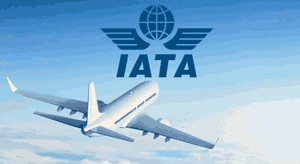
Международная Ассоциация воздушного транспорта (ИАТА)объявила о завершении ежегодного пересмотра своих отраслевых руководств по грузовым перевозкам, наземному обслуживанию и операциям, в результате которого обновления были внесены во многие базовые отраслевые стандарты. Эти изменения отражают стремление отрасли к дальнейшему повышению безопасности, внедрению более современных технологий, а также повышению качества обслуживания пассажиров и обработки грузов. Прежде всего, это касается пересмотренных правил перевозки опасных грузов. В связи с тем, что ежегодно по воздуху перевозится более 1,25 миллиона партий опасных грузов, важно, чтобы правила и положения, обеспечивающие безопасную перевозку таких веществ и предметов, были пересмотрены с учетом изменений в области безопасности и эксплуатации. Особое внимание здесь было уделено литиевым батареям, поскольку потребительский спрос на электронные устройства, такие как планшеты и небольшие персональные мобильные устройства, продолжает расти. Кроме того, изменения коснулись Руководства по стандартным процедурам предварительной загрузки расширенной информации о грузе (Standard Procedures for Preloading Advanced Cargo Information (PLACI)), Руководства по посадке для пассажиров с ограниченной подвижностью, процедур перевозки домашних питомцев, а также Рекомендаций по проектированию и использованию систем предотвращения столкновений с оборудованием наземного обслуживания. | |
Первый национальный стандарт в области противодействия терроризму | 20.01.2023 |

Стандартом рекомендован основной понятийный аппарат в сфере антитеррористической деятельности, что очень важно для всеобщего понимания и использования терминологии с целью обеспечения единообразного толкования установленных требований. Документ стал первым российским стандартом в области антитеррористической защищенности. Актуальность разработки национального стандарта в сфере обеспечения антитеррористической защищенности объектов (территорий) связана с изменениями, внесенными в законодательство Российской Федерации по противодействию терроризму, начиная с 2013 года, до настоящего времени. | |
Новый транспортно-логистический центр | 20.01.2023 |
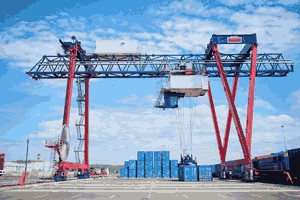
В рамках проекта «Формирование сети транспортно-логистических центров» на конец 2024 года планируется ввод в эксплуатацию транспортно-логистического центра «Приморский»,Центр «Приморский» будет расположен вблизи основной портовой инфраструктуры края и пограничных пунктов пропуска. Предварительный анализ показал, что, с учетом наличия в регионе грузовой базы, гарантируется загруженность терминала. Как ожидается, оказание терминалом услуг по перевалке, хранению и накоплению контейнерных грузов, поступающих из портов Приморского края, обеспечит рост товарооборота России со странами Азиатско-Тихоокеанского региона По имеющейся статистике, из общего объема грузов, перевозимых в контейнерах, опасные грузы составляют около 20%. В связи с этим, компаниям, которые отвечают за перевозку грузов несколькими видами транспорта и готовят грузы к отправке, требуется уделять особое внимание подготовке персонала, чья деятельность связана с опасными грузами. Грузы могут перевозиться как в обычных большегрузных контейнерах, так и специализированных, в том числе в танк-контейнерах. Программа, по которой готовят в Международном центре подготовки персонала (МЦПП), учитывает специфику подготовки специалистов для мультимодальных операторов. При этом Международная Ассоциация по опасным грузам и контейнерам рекомендует грузоотправителям, грузоперевозчикам и грузополучателям иметь в своём составе специалистов, прошедших подготовку по программе «Советник по безопасности перевозки опасных грузов» и пройти аттестацию в Международной Ассоциации по опасным грузам и контейнерам. Наличие в составе компании Советников может уменьшить риск возникновения инцидентов с опасными грузами и будет способствовать эффективной перевозке опасных грузов. | |
Новый кодекс | 18.01.2023 |
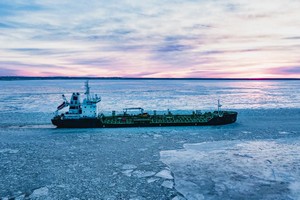
На официальном сайте Международной морской организации (ИМО) опубликовано сообщение о принятии Кодекса по безопасности судов, перевозящих производственный персонал (Кодекс ПП). На заседании Комитета ИМО по безопасности на море (MSC 106), которое состоялось в период со 2 по 11 ноября 2022 года, был принят кодекс безопасности для судов, перевозящих промышленный персонал. Этот новый кодекс, направленный на обеспечение безопасности промышленного персонала, перевозимого для осуществления работ на морских объектах, носит обязательный характер. Основанием для введения этого инструмента является новая глава XV Международной конвенции по охране человеческой жизни на море (СОЛАС). Эта глава, как и новый кодекс, были разработаны Подкомитетом ИМО по проектированию и строительству судов (SDC 8). Новые документы ИМО разработаны с целью обеспечения минимальных стандартов безопасности для судов, перевозящих промышленный персонал, а также для самого персонала, и устранения специфических рисков морских операций в оффшорном секторе. Персонал, работающий в этом секторе, может быть задействован в строительстве, техническом обслуживании, выводе из эксплуатации, эксплуатации или сервисном обслуживании морских объектов, таких как нефтяные платформы, ветряные электростанции или в аналогичных видах деятельности. Как ожидается, Кодекс ПП вступит в силу 1 июля 2024 года. Международная Ассоциация по опасным грузам и контейнерам и Международный центр подготовки персонала скорректируют свои учебные программы с учетом содержания новых инструментов ИМО. | |
Сессия Комитета по вопросам безопасности ВОПОГ | 18.01.2023 |
|
23–27 января 2023 года во Дворце Наций (Женева) состоится сорок первая сессия Совместного совещания экспертов по Правилам, прилагаемым к Европейскому соглашению о международной перевозке опасных грузов по внутренним водным путям (ВОПОГ) (Комитет по вопросам безопасности ВОПОГ). В предварительной повестке дня сессии следующие вопросы:
При рассмотрении применения ВОПОГ будут обсуждены состояние ВОПОГ, специальные разрешения, отступления и эквивалентные аналоги, толкование Правил, прилагаемых к ВОПОГ, подготовка экспертов, а также вопросы, касающиеся классификационных обществ. Эксперты НП «АСПОГ» планируют принять участие в работе сессии. | |



